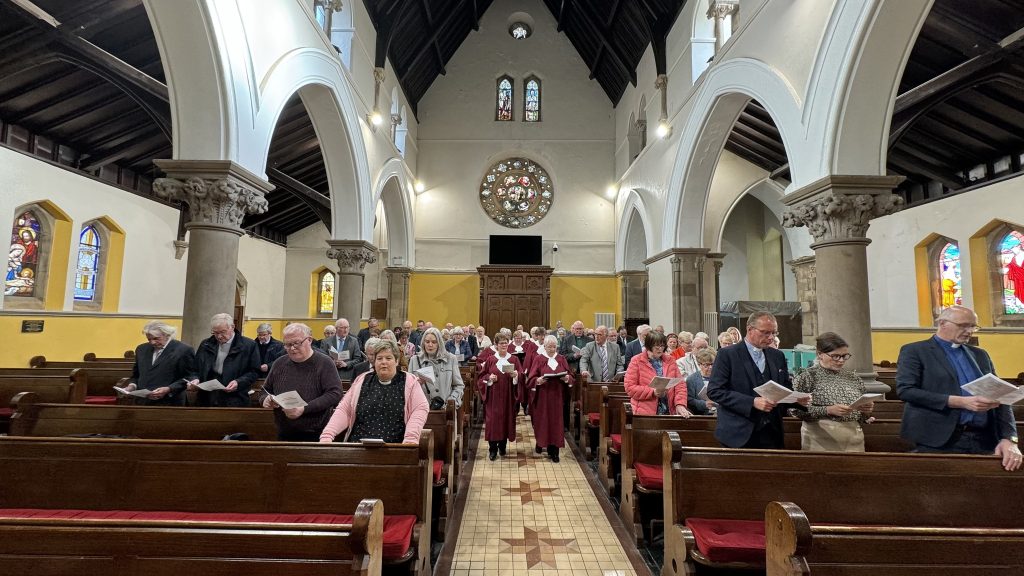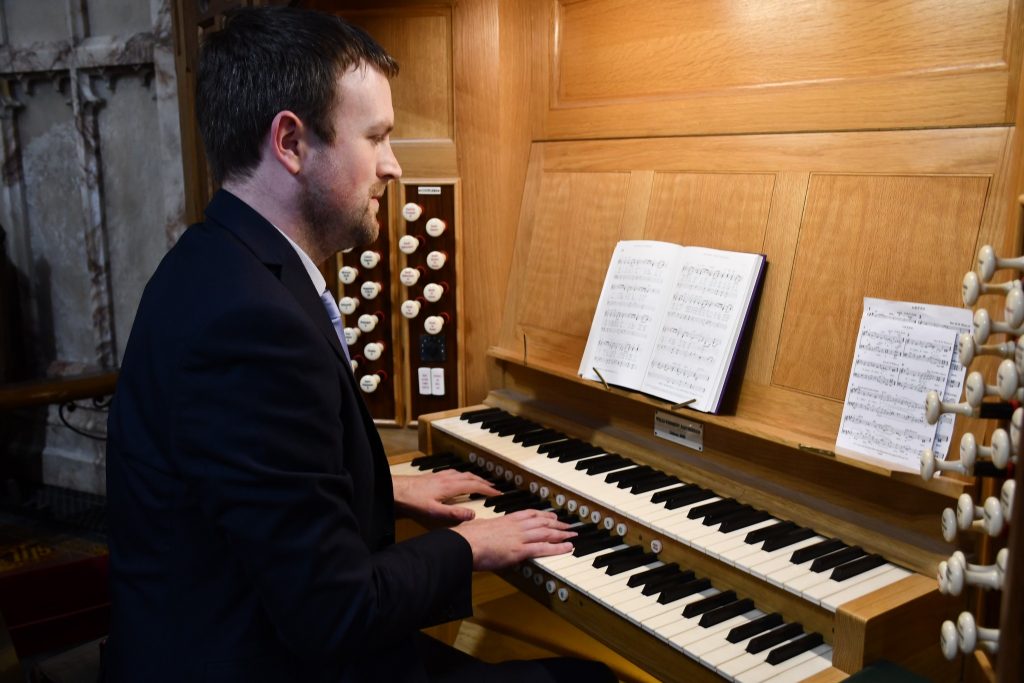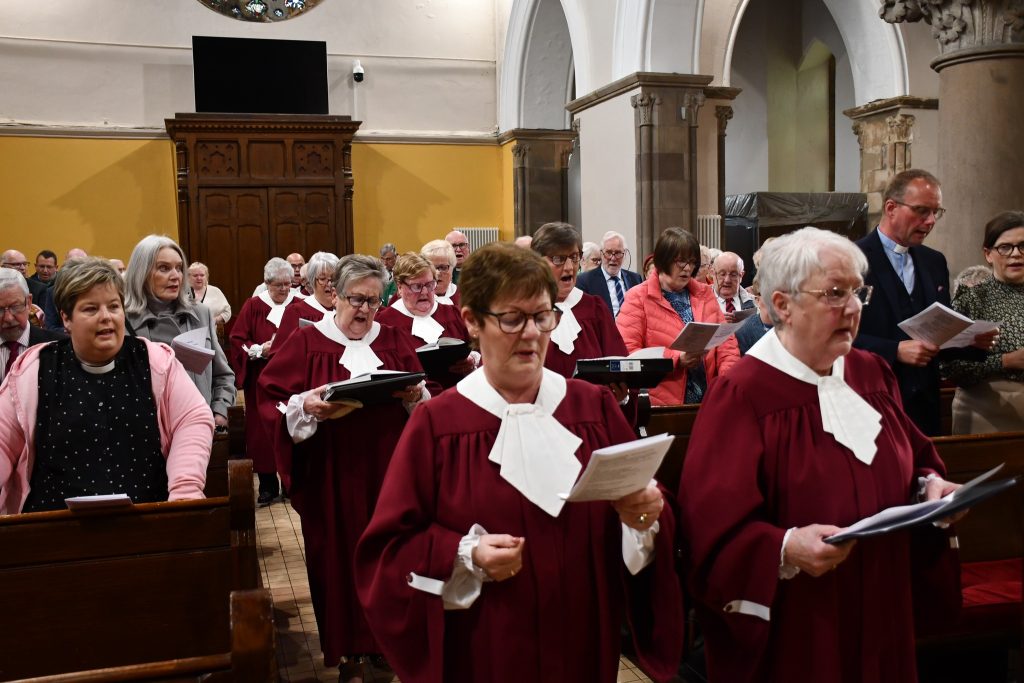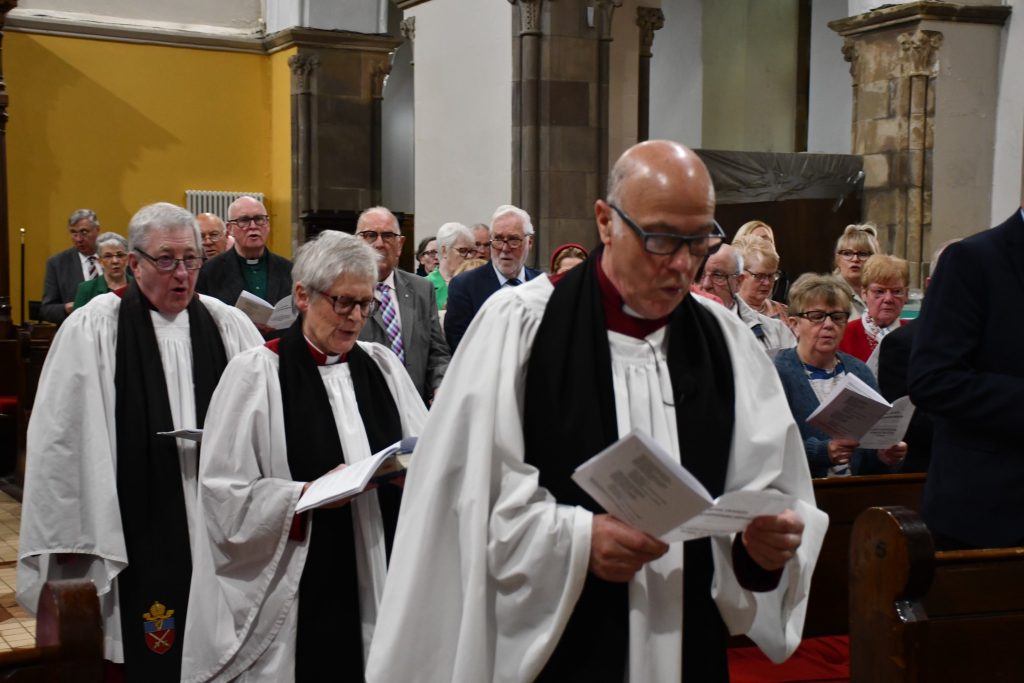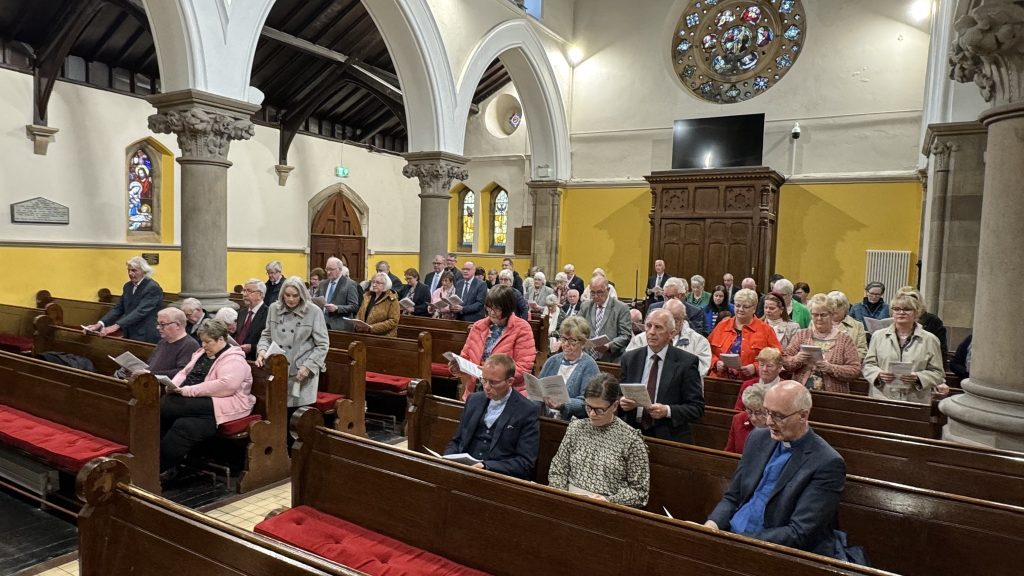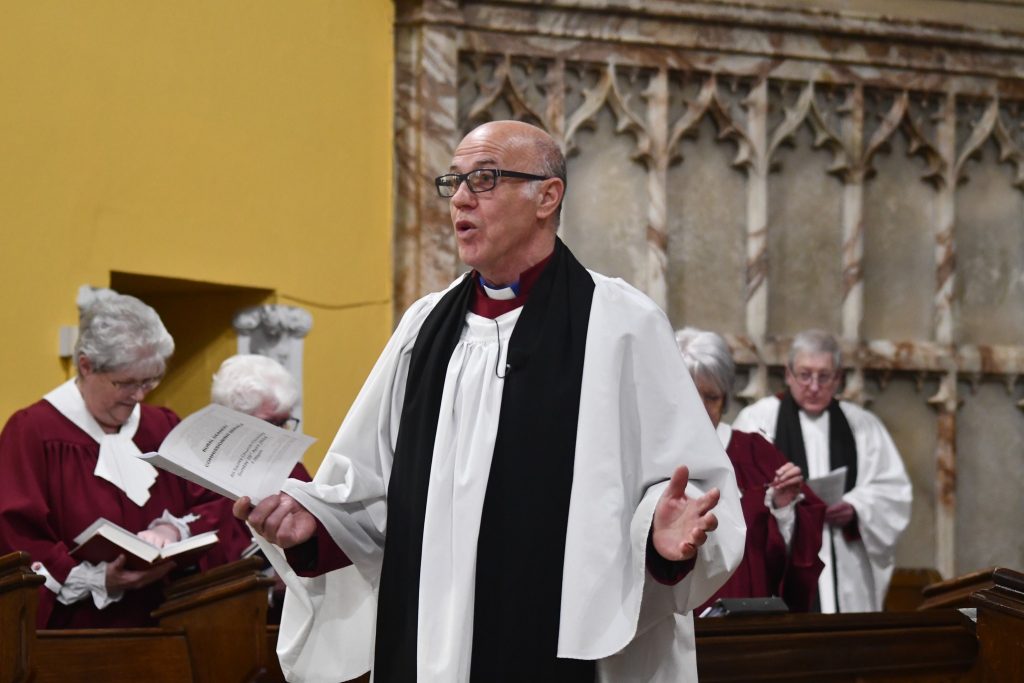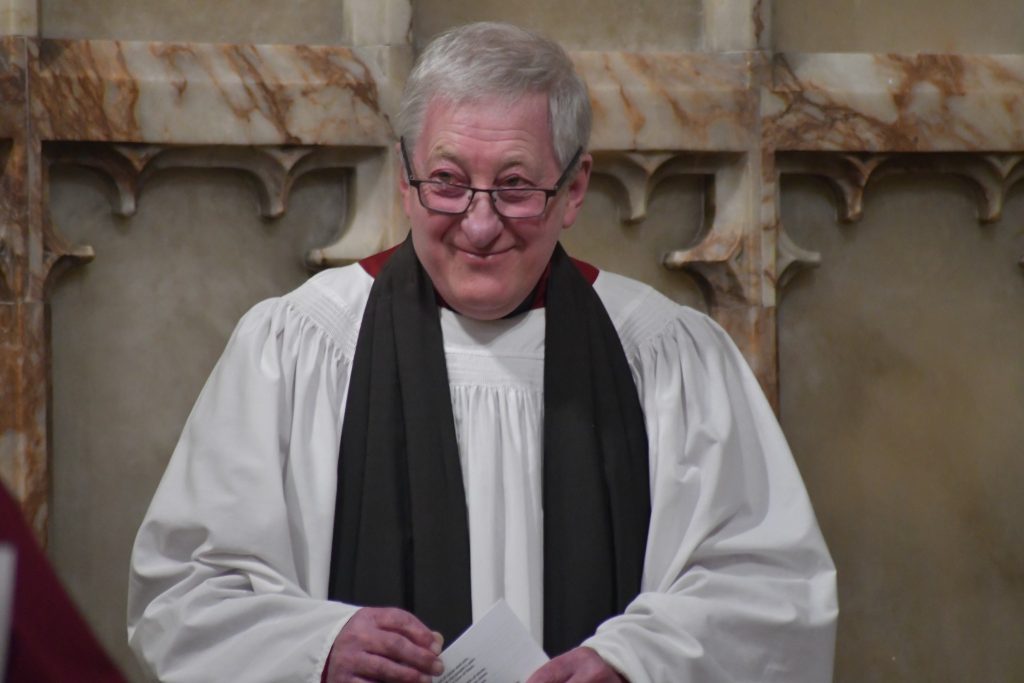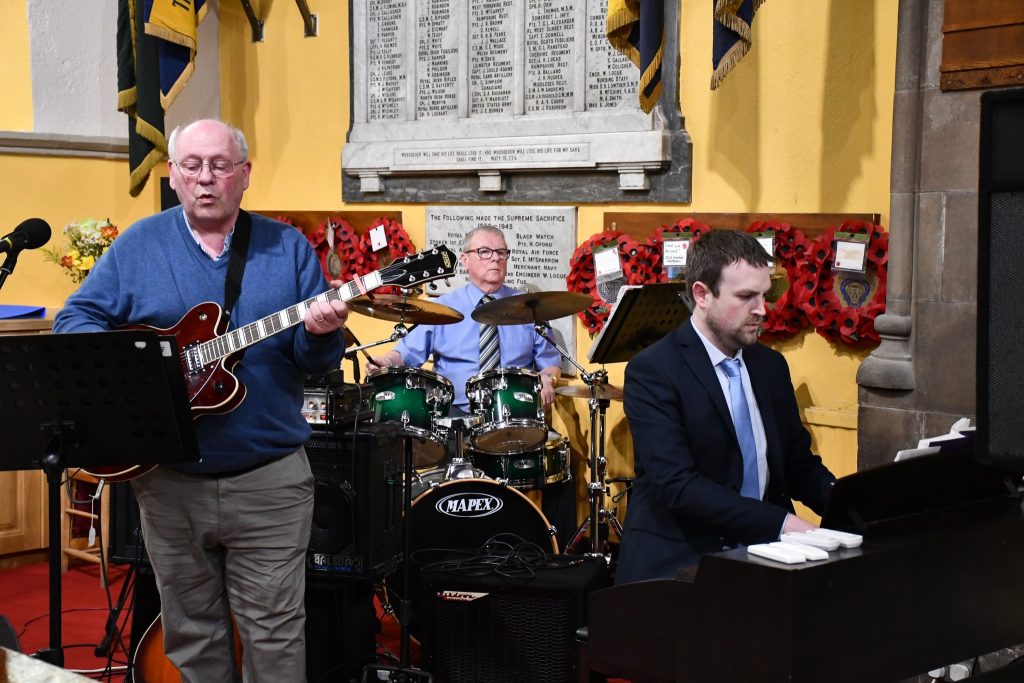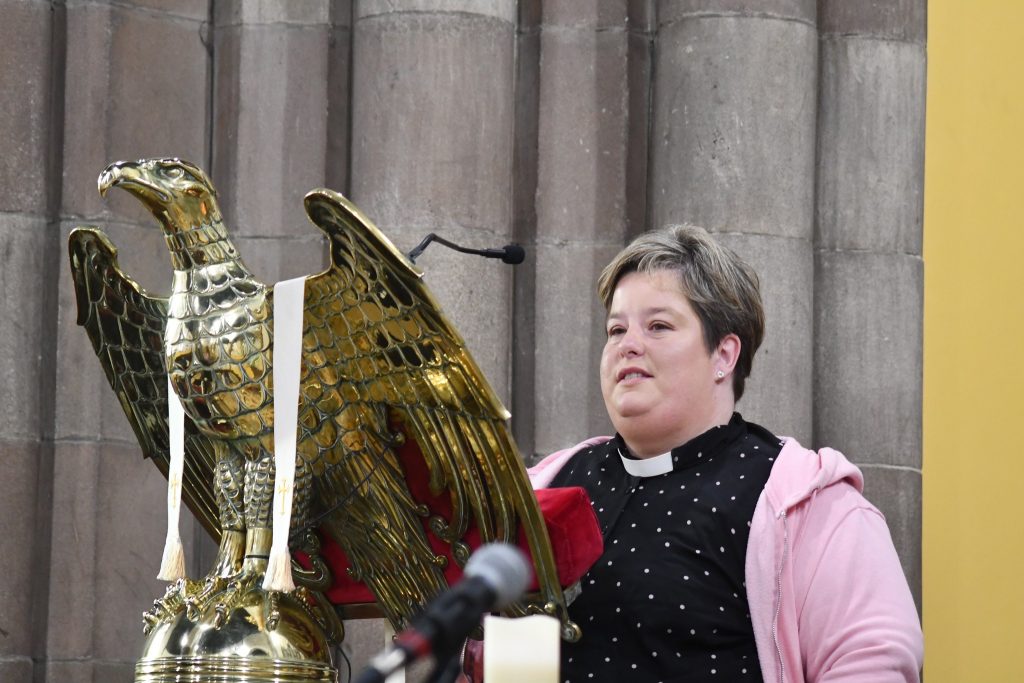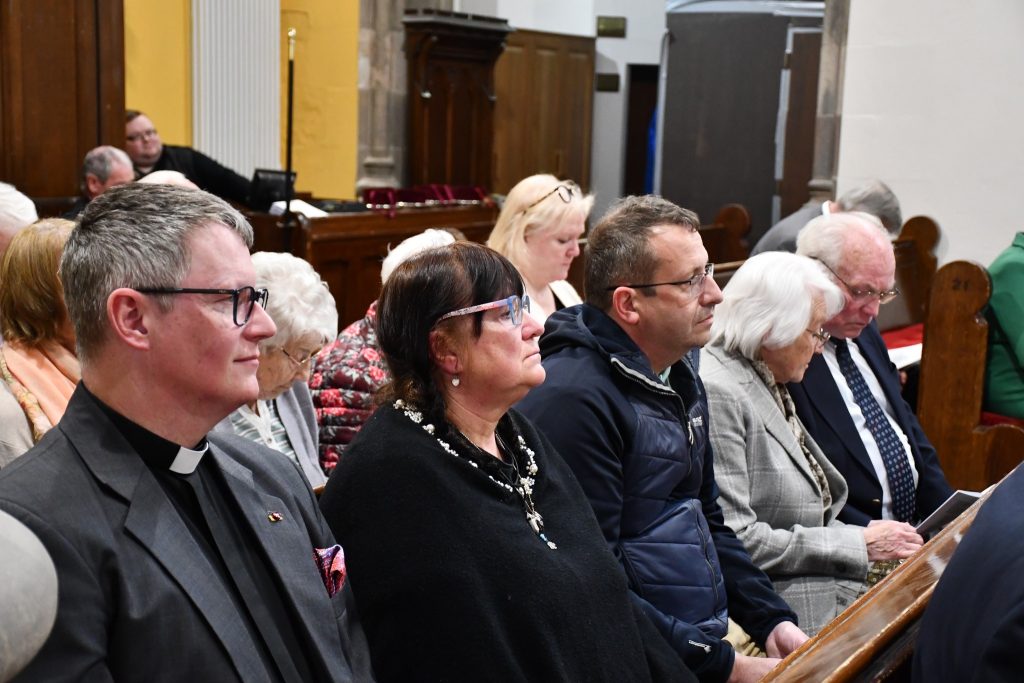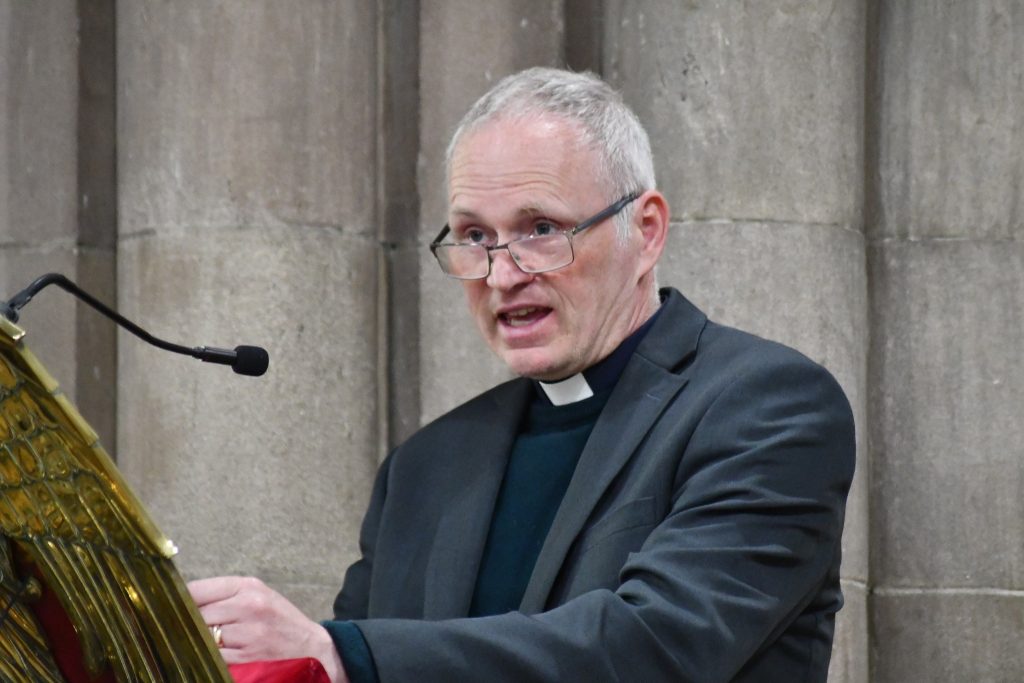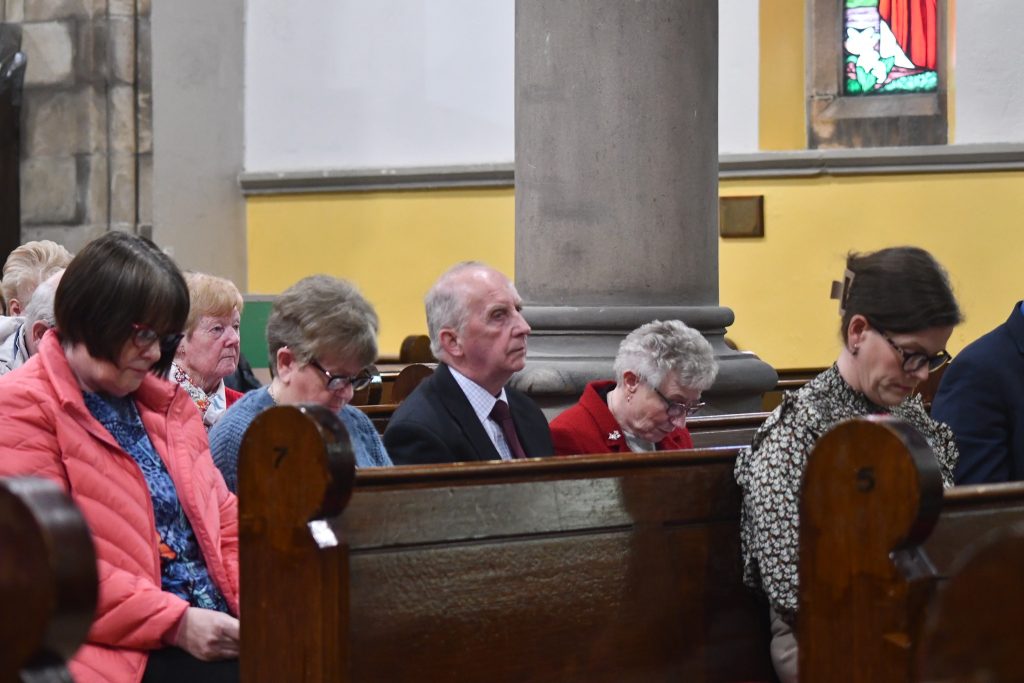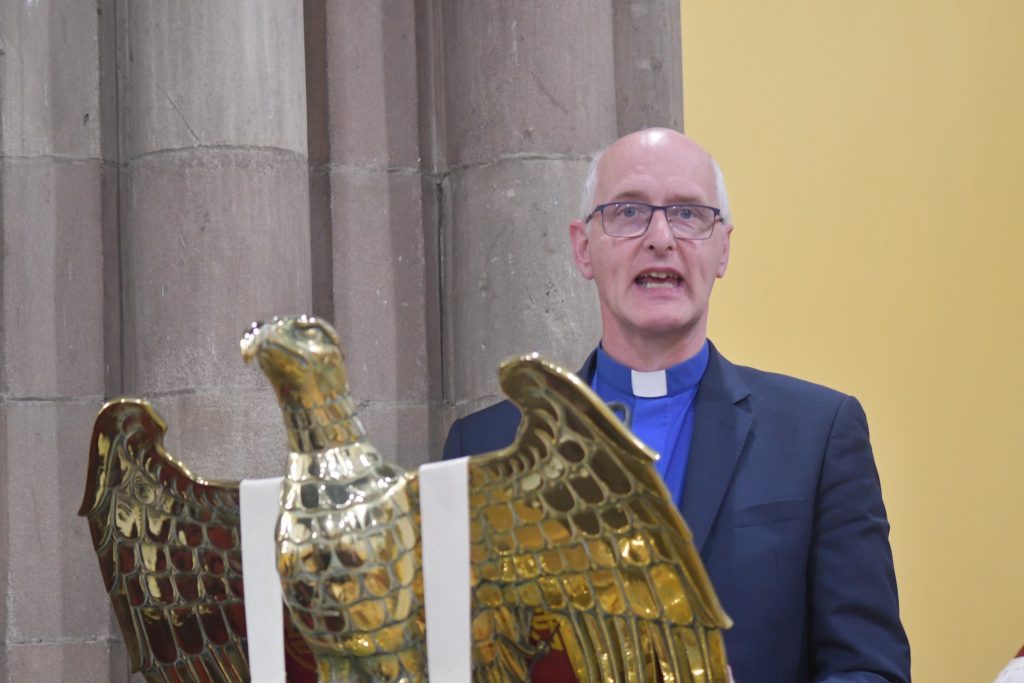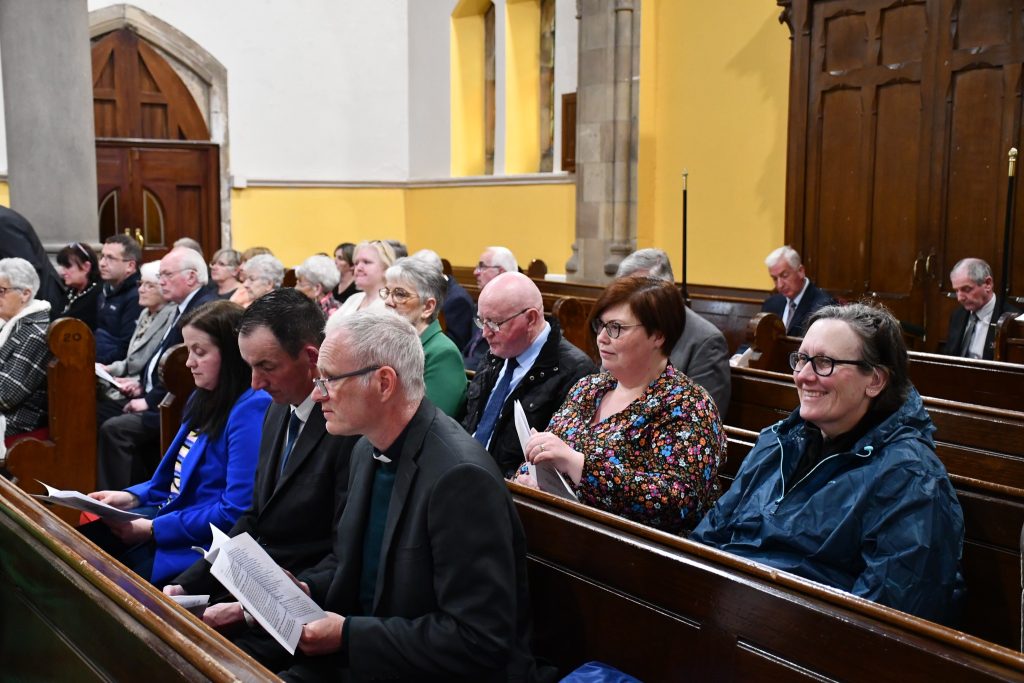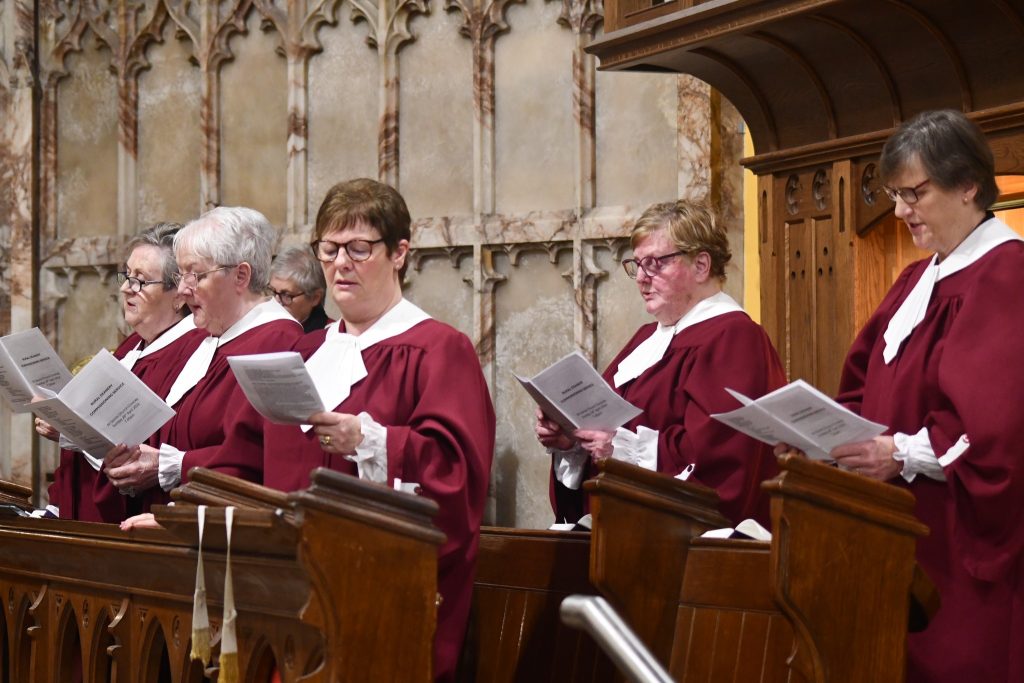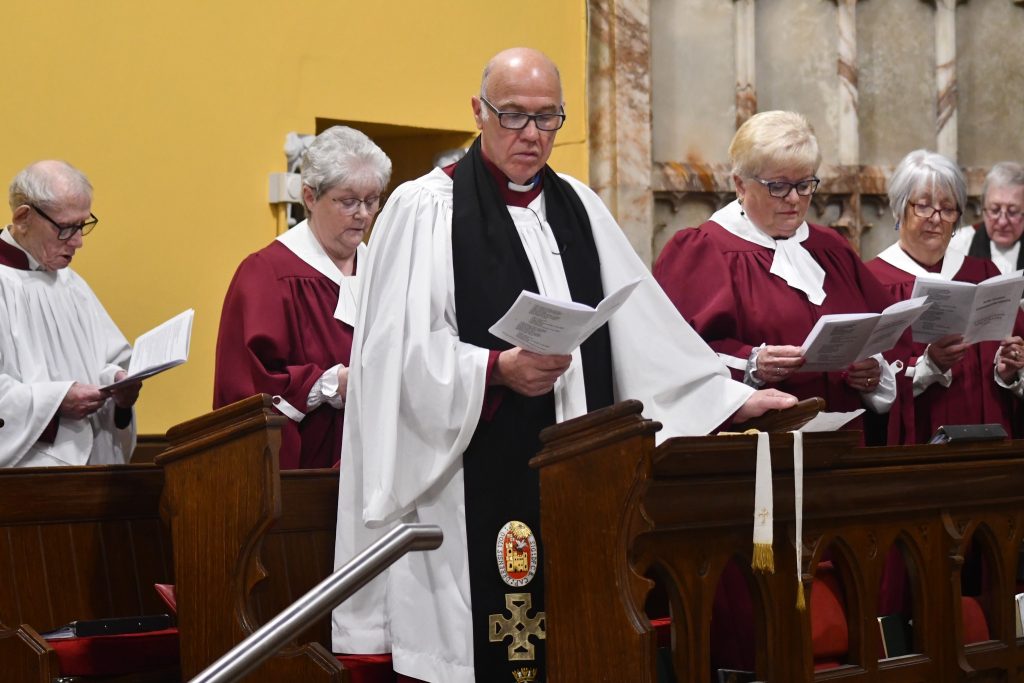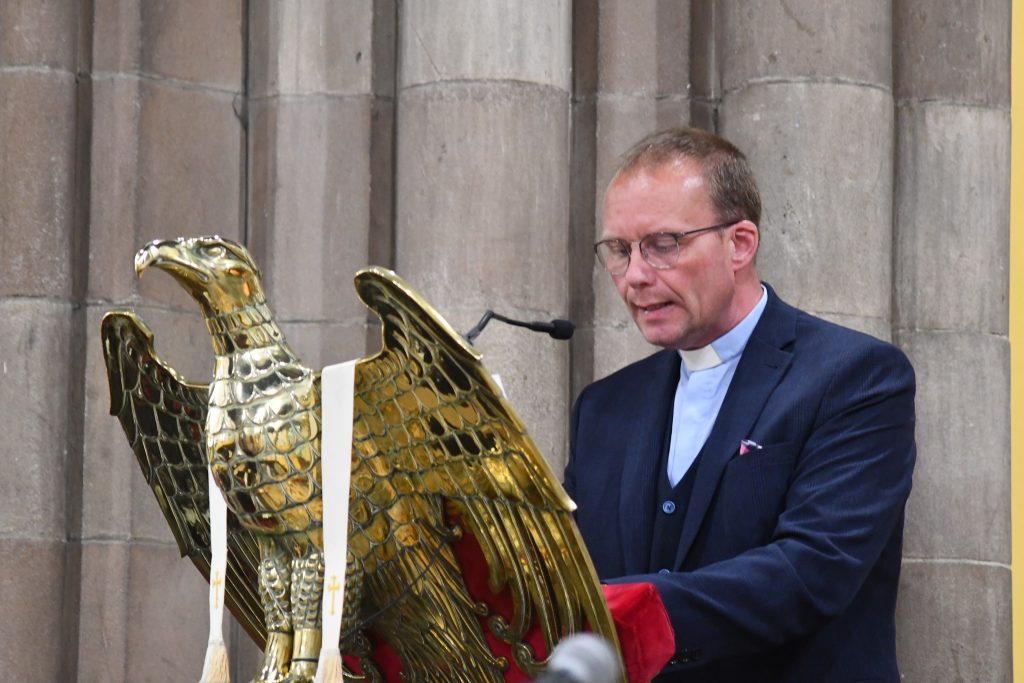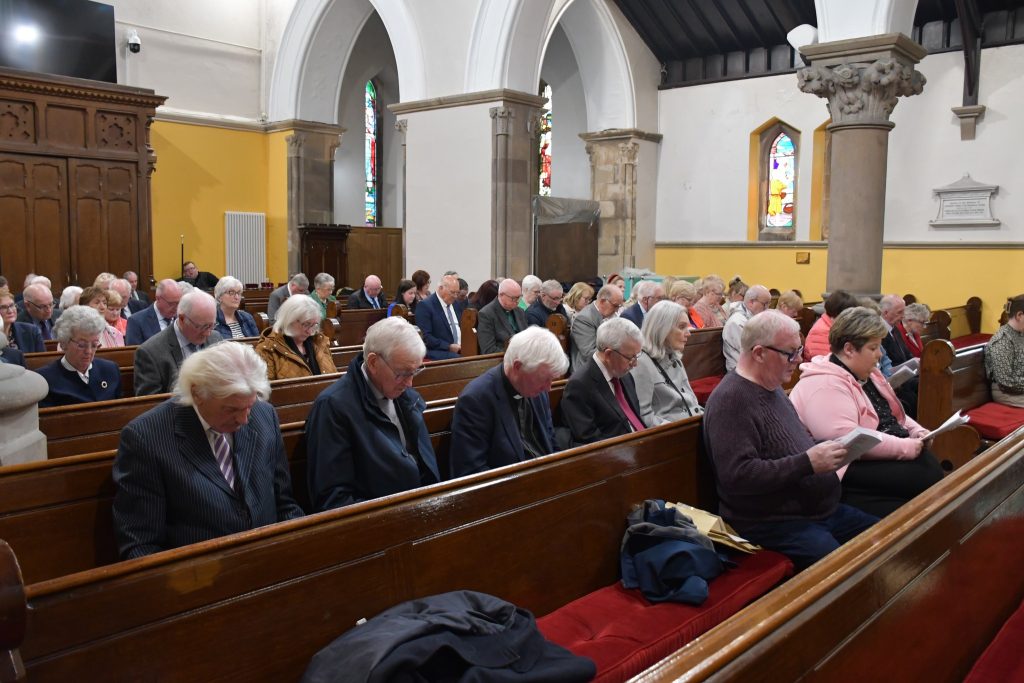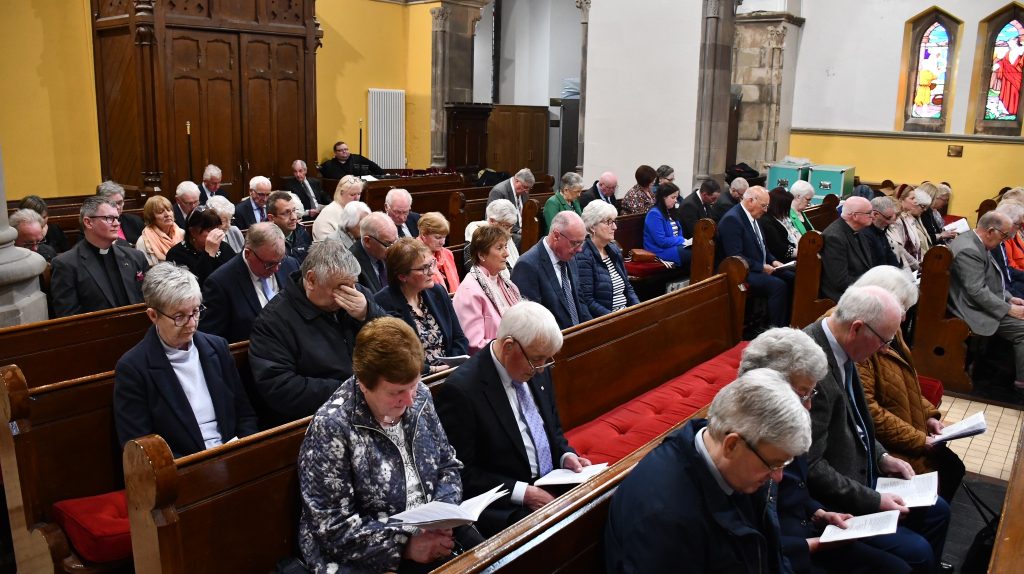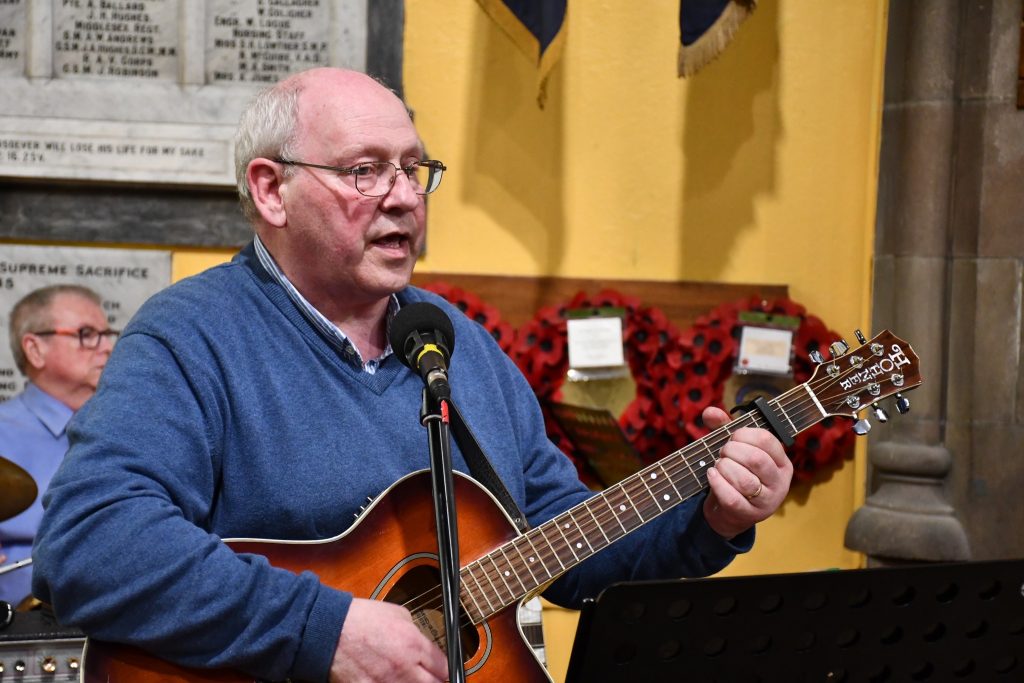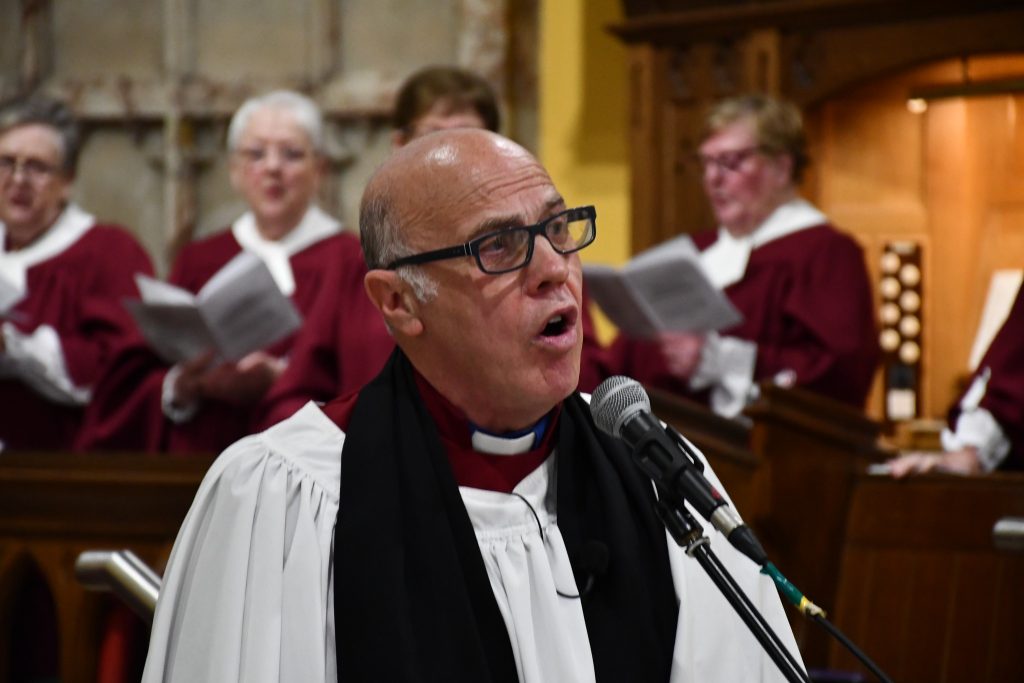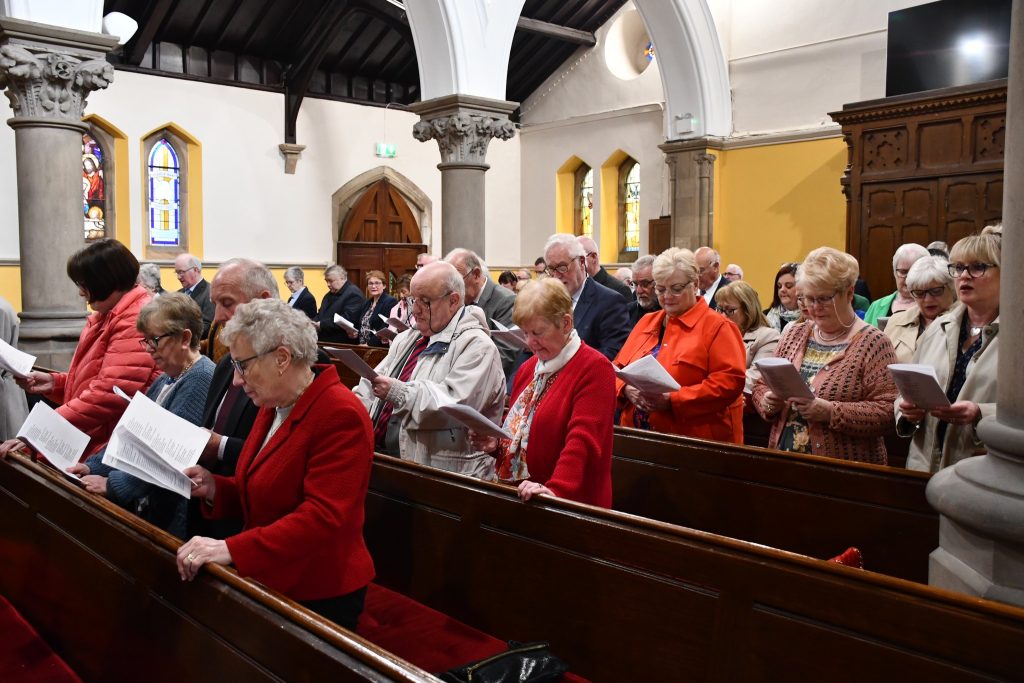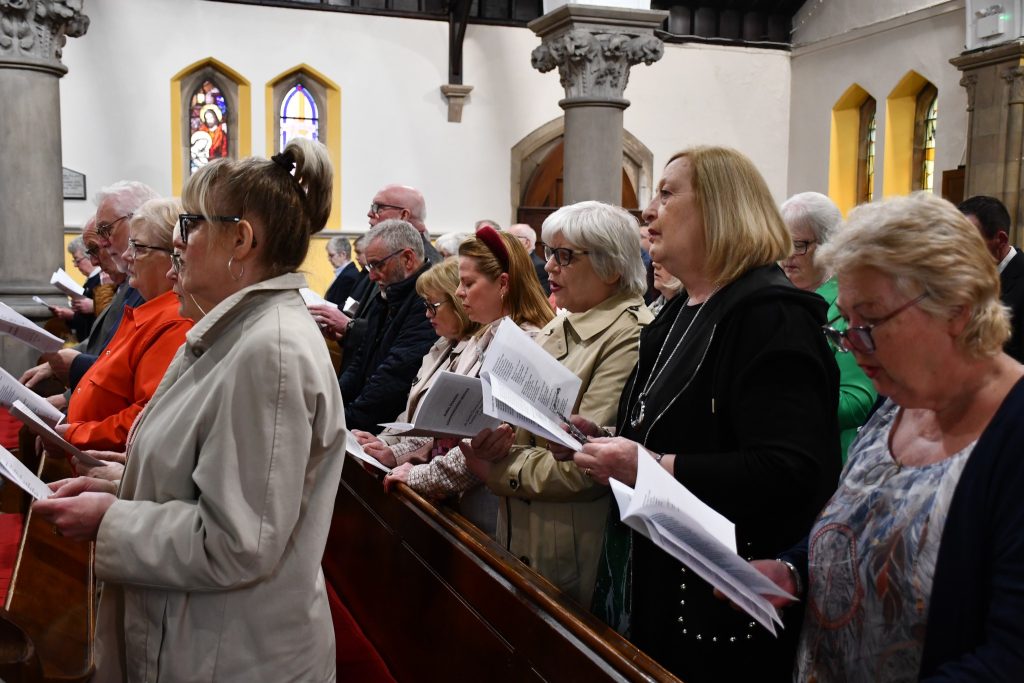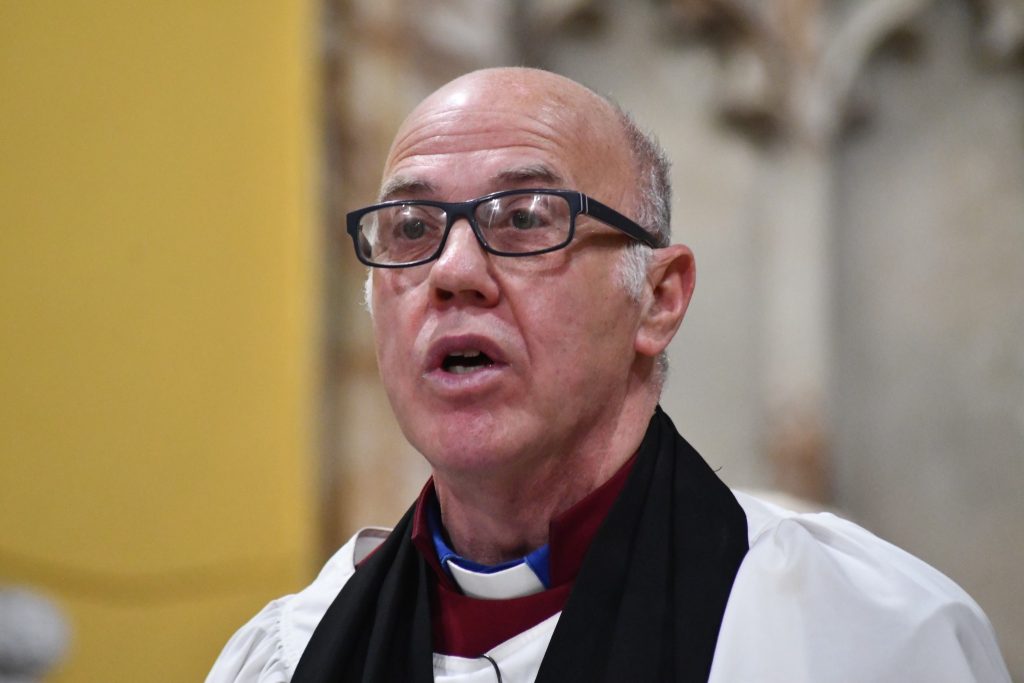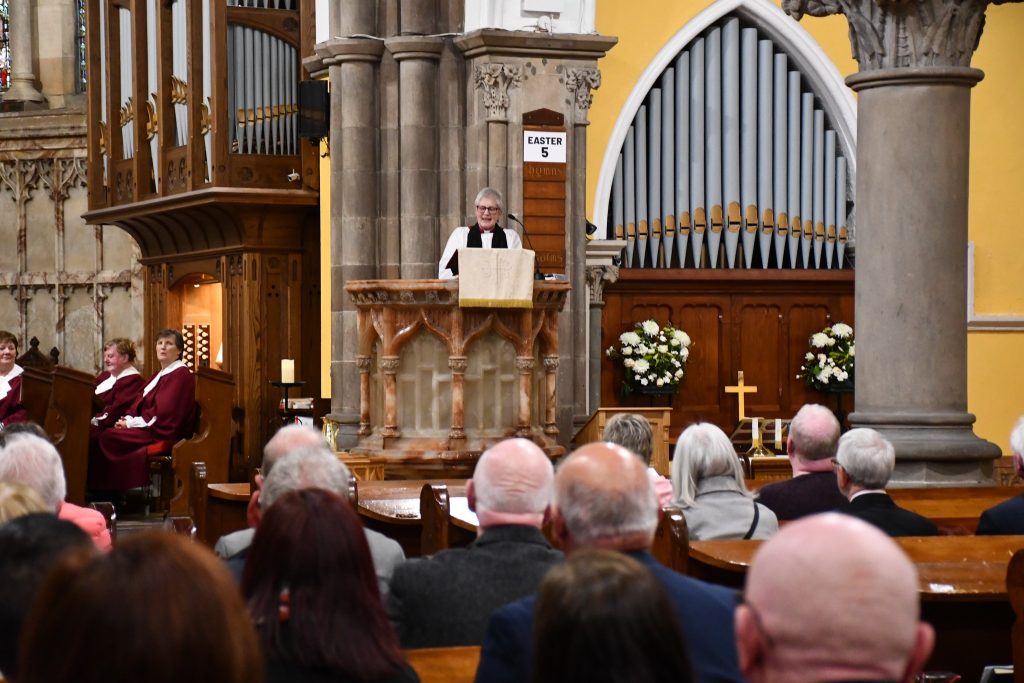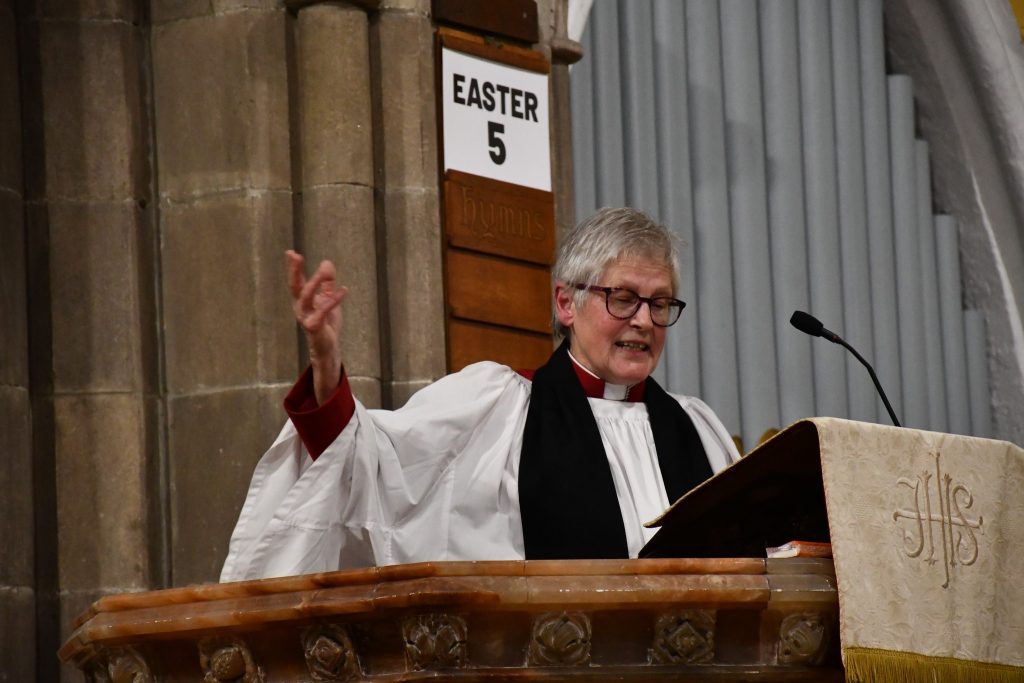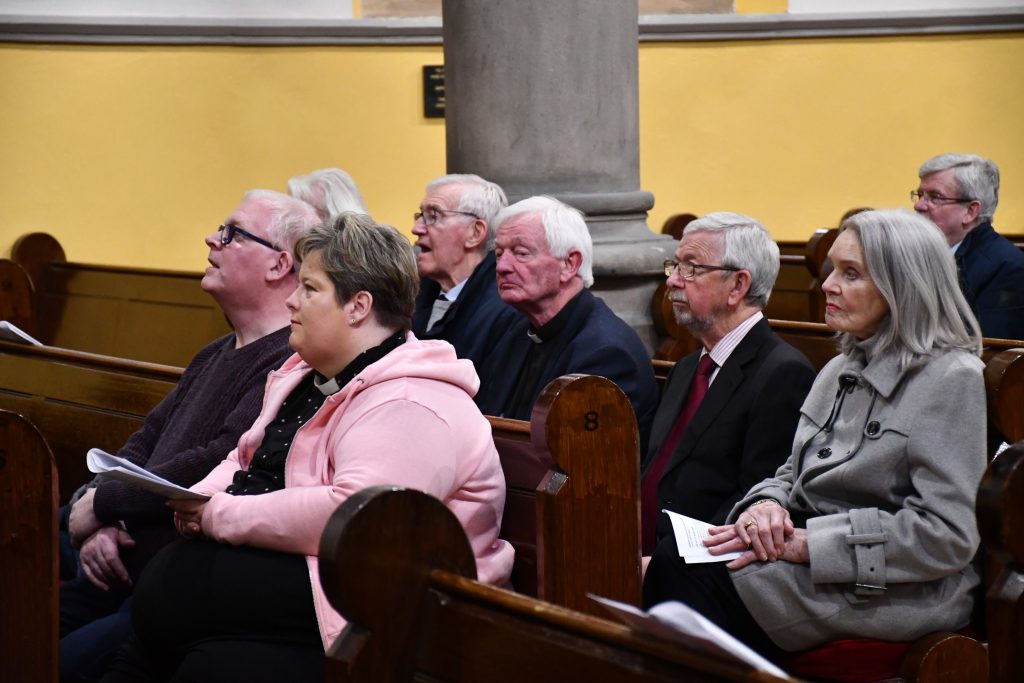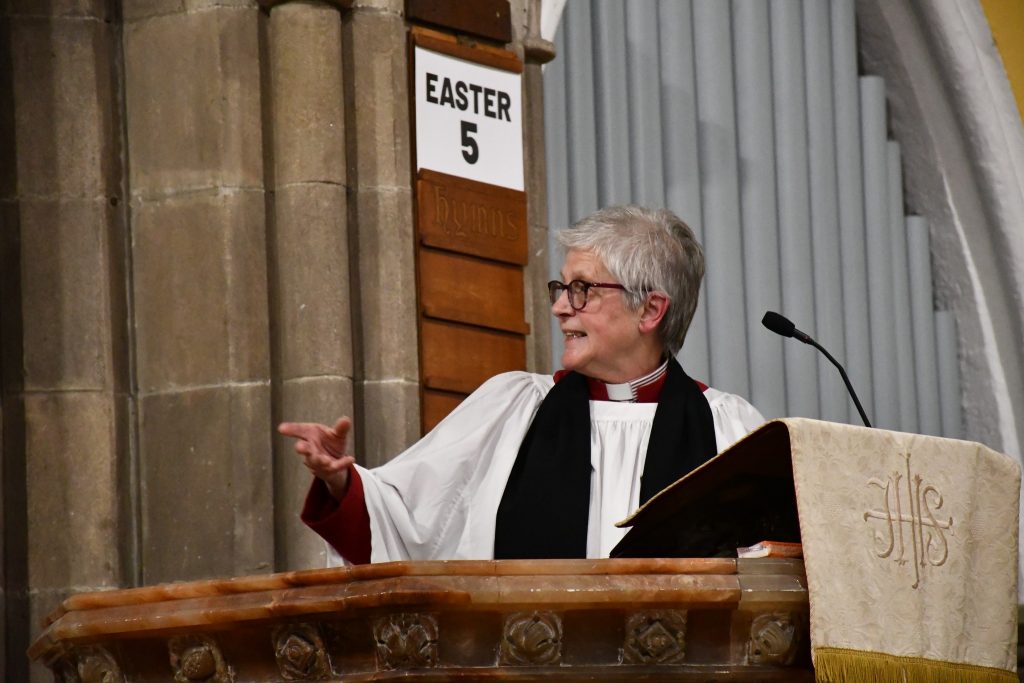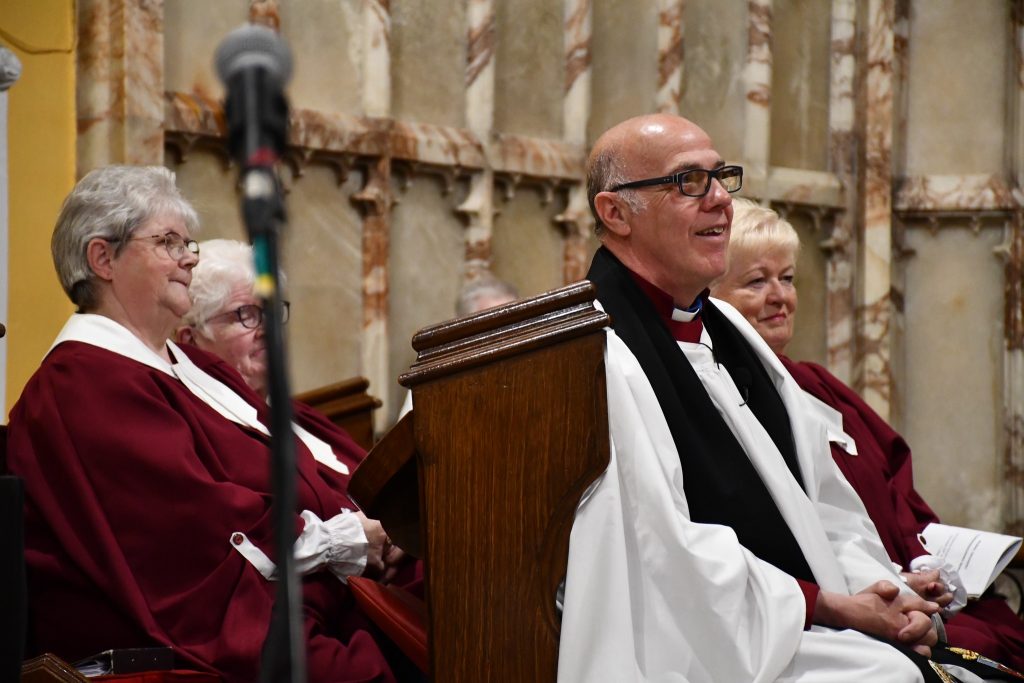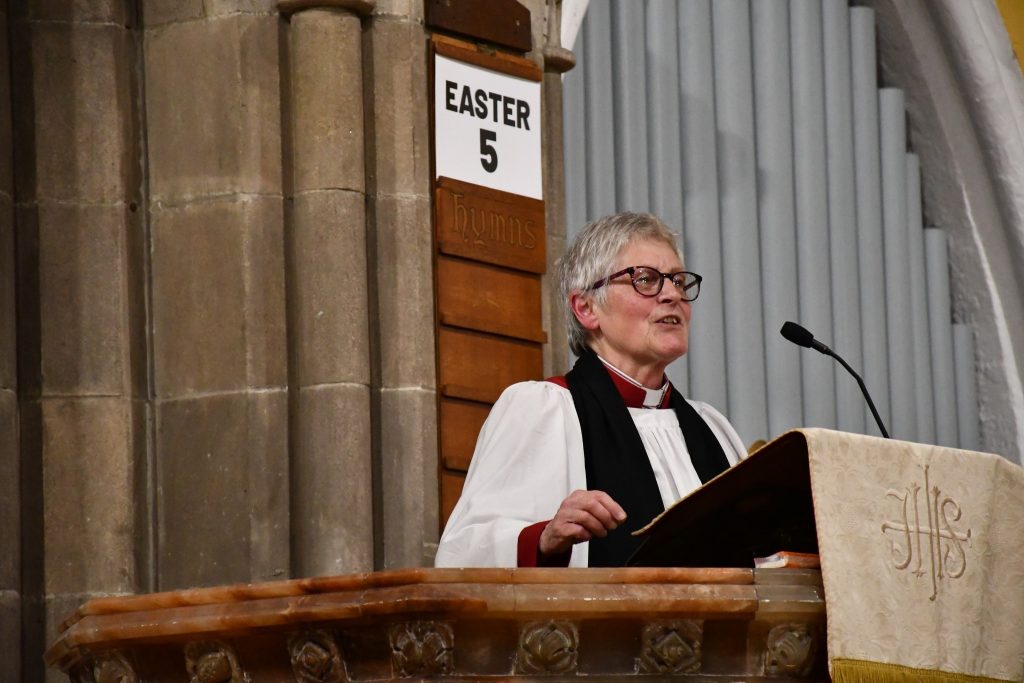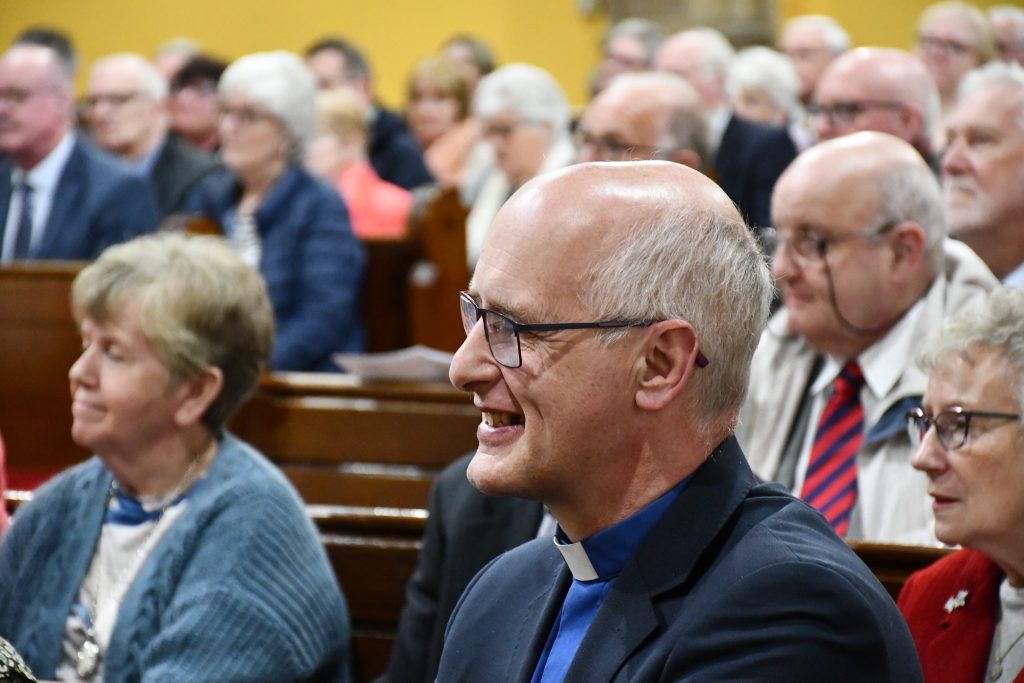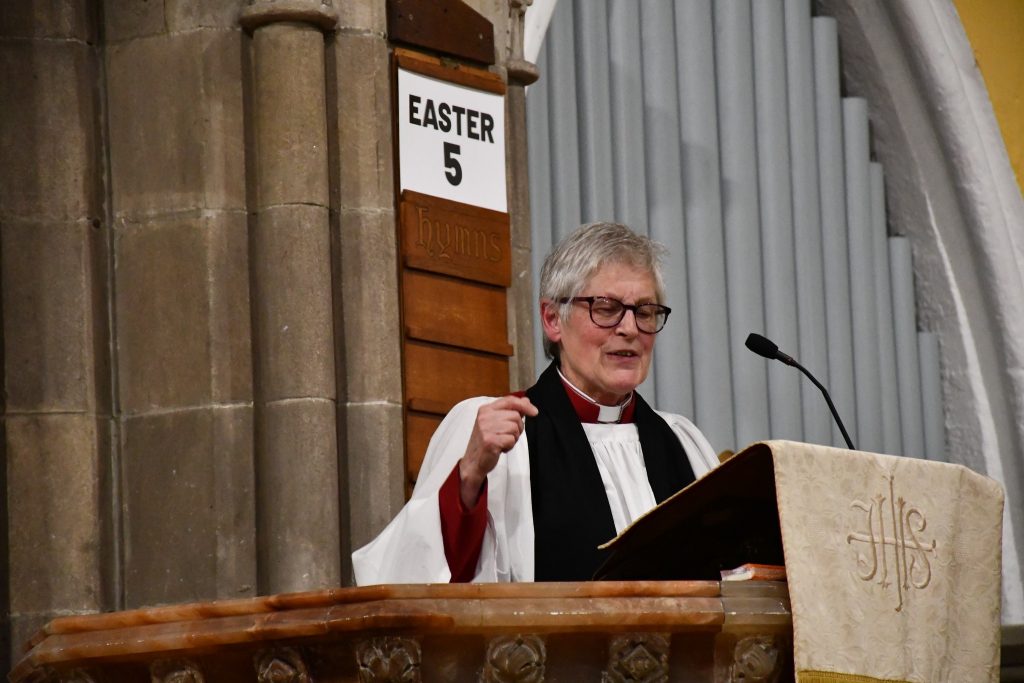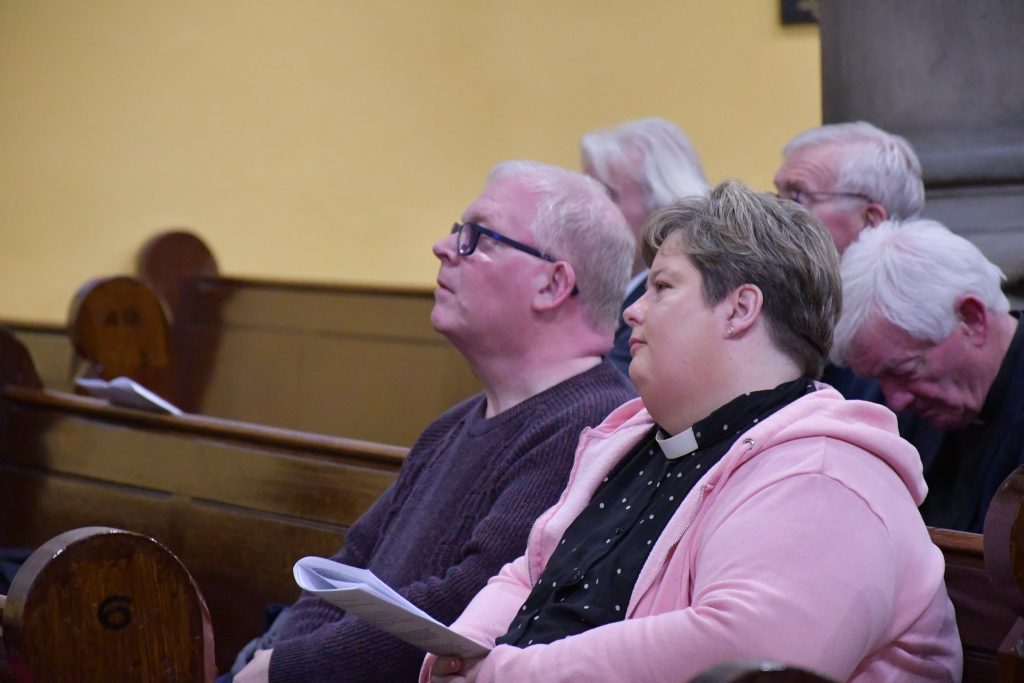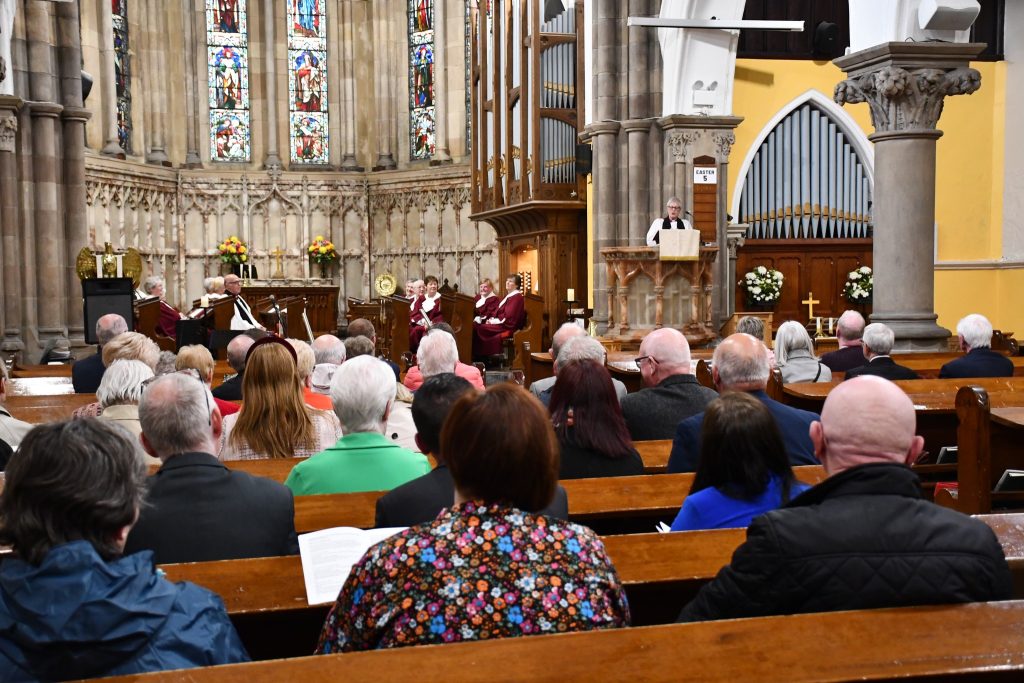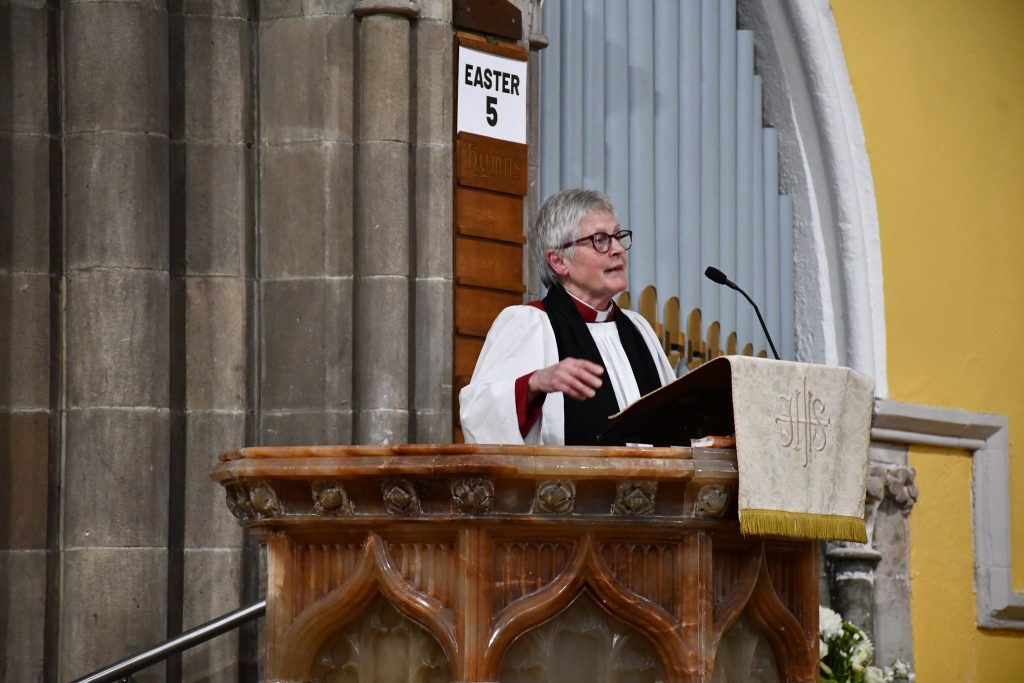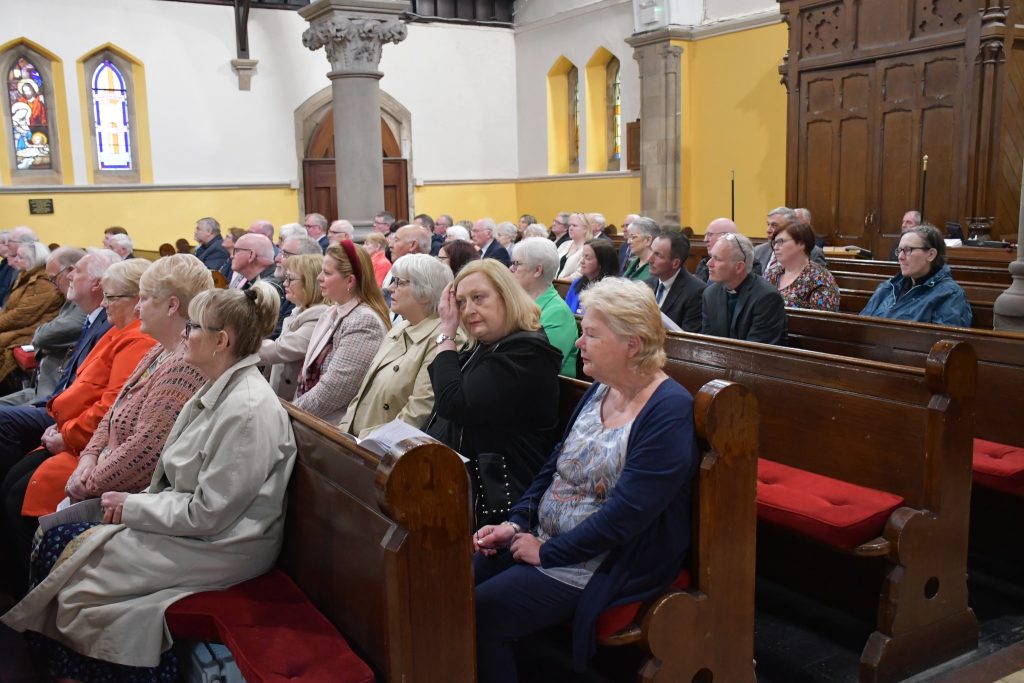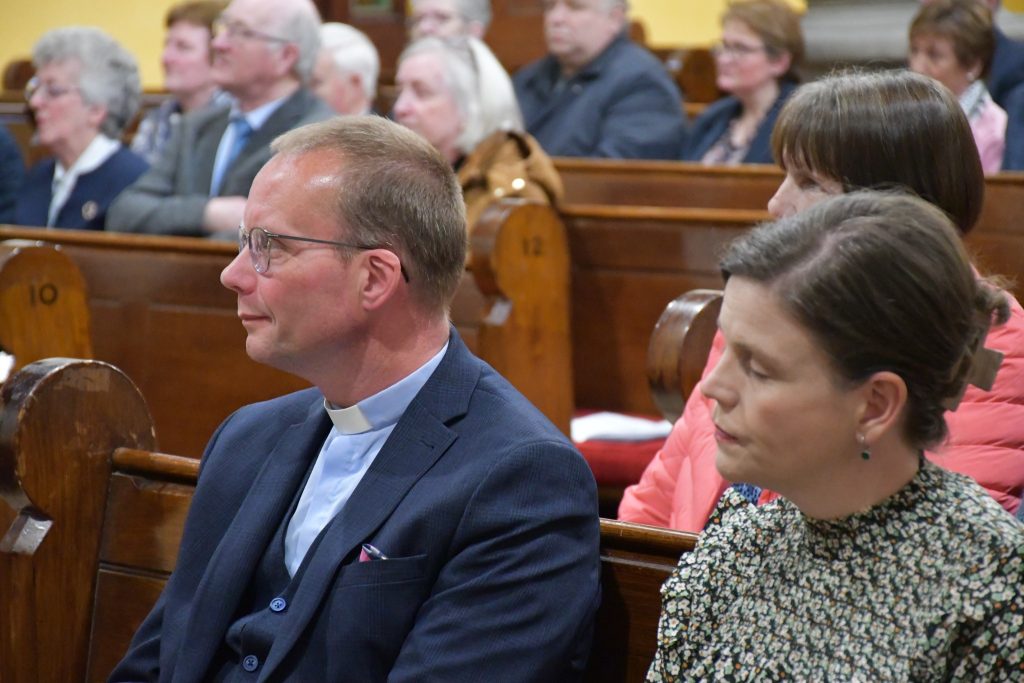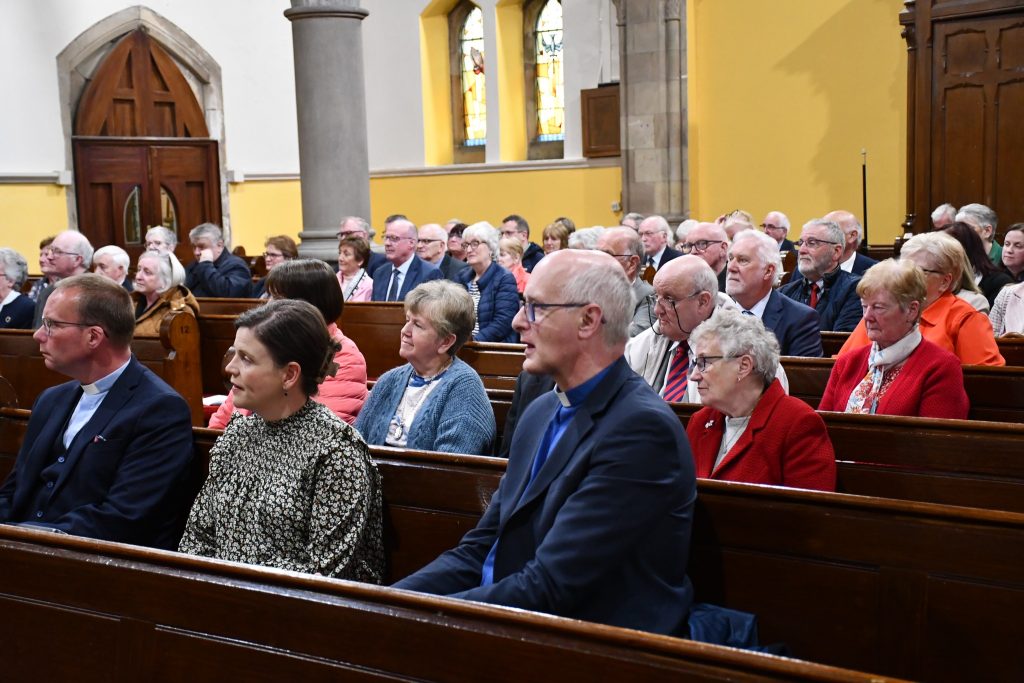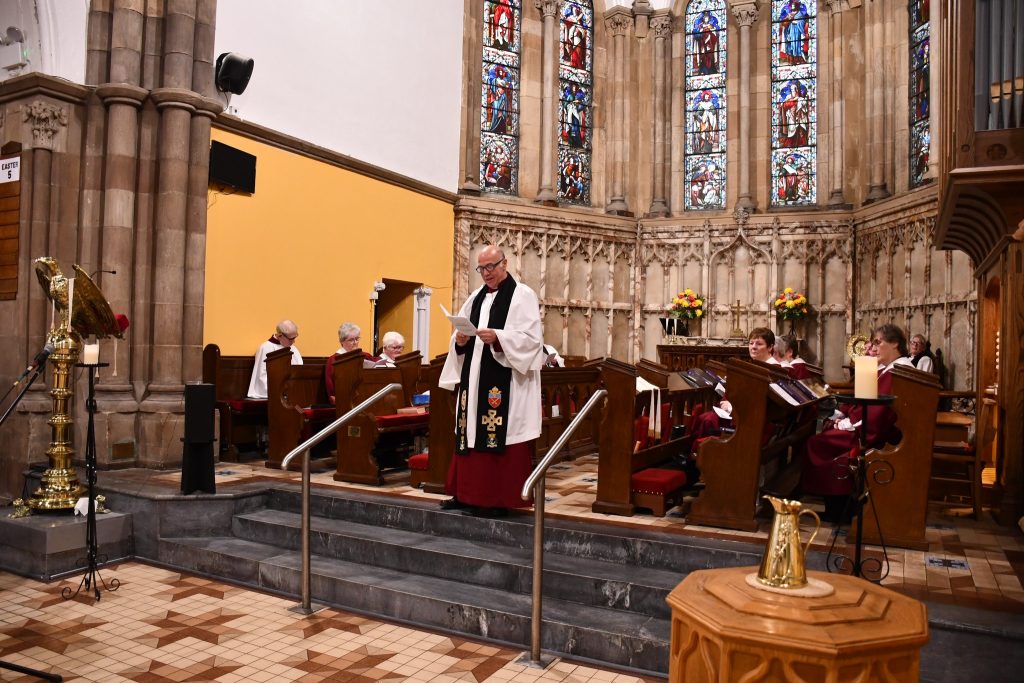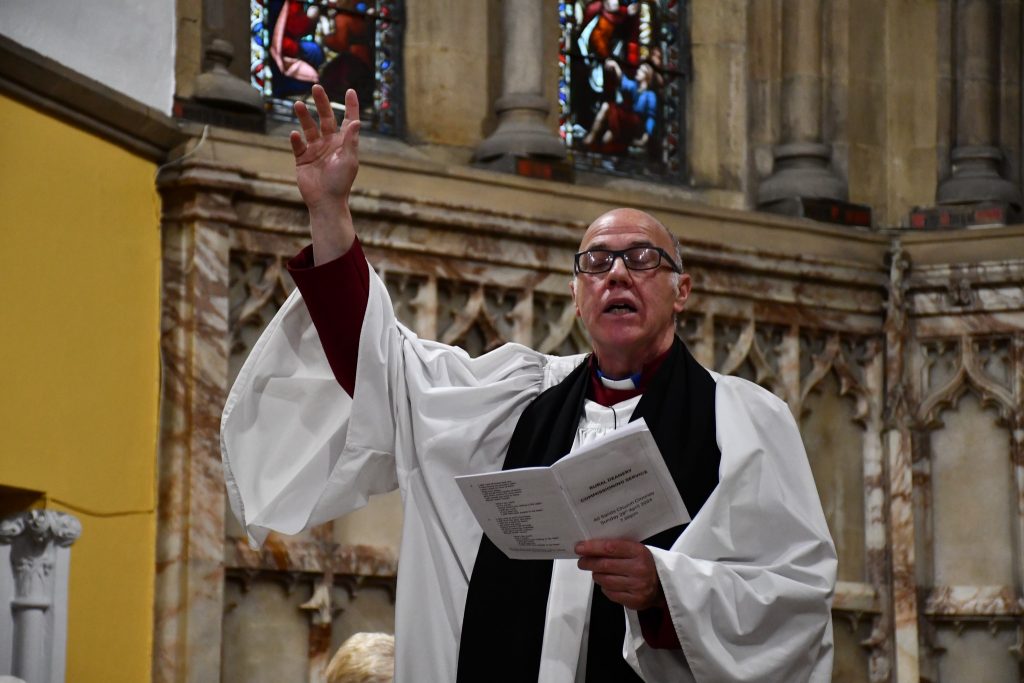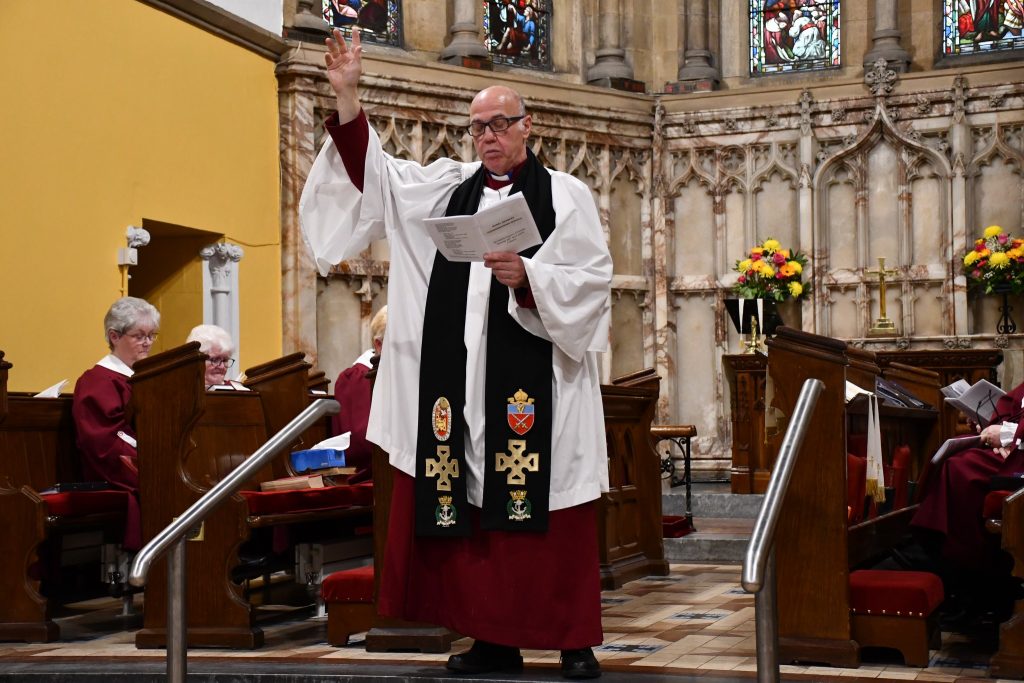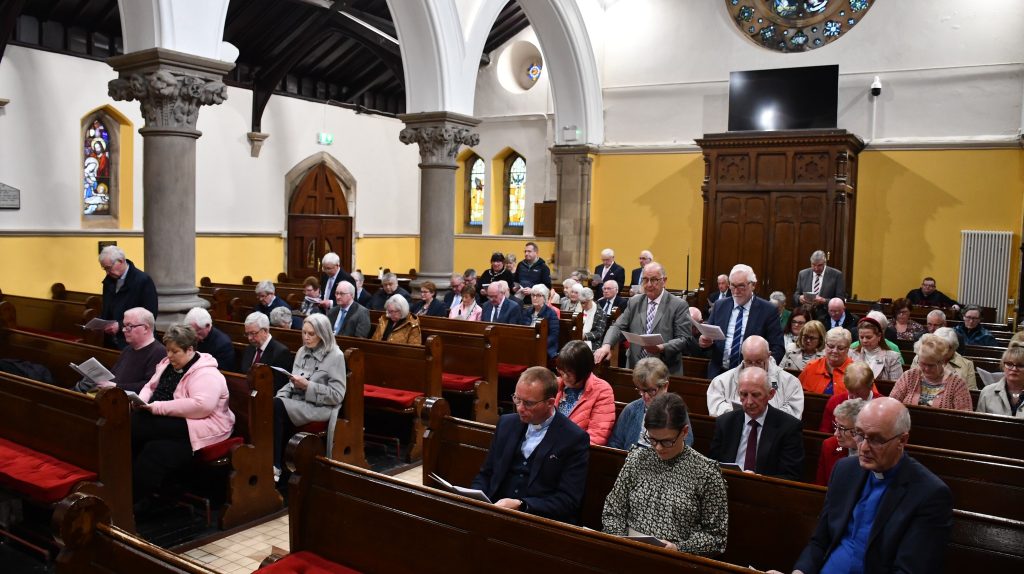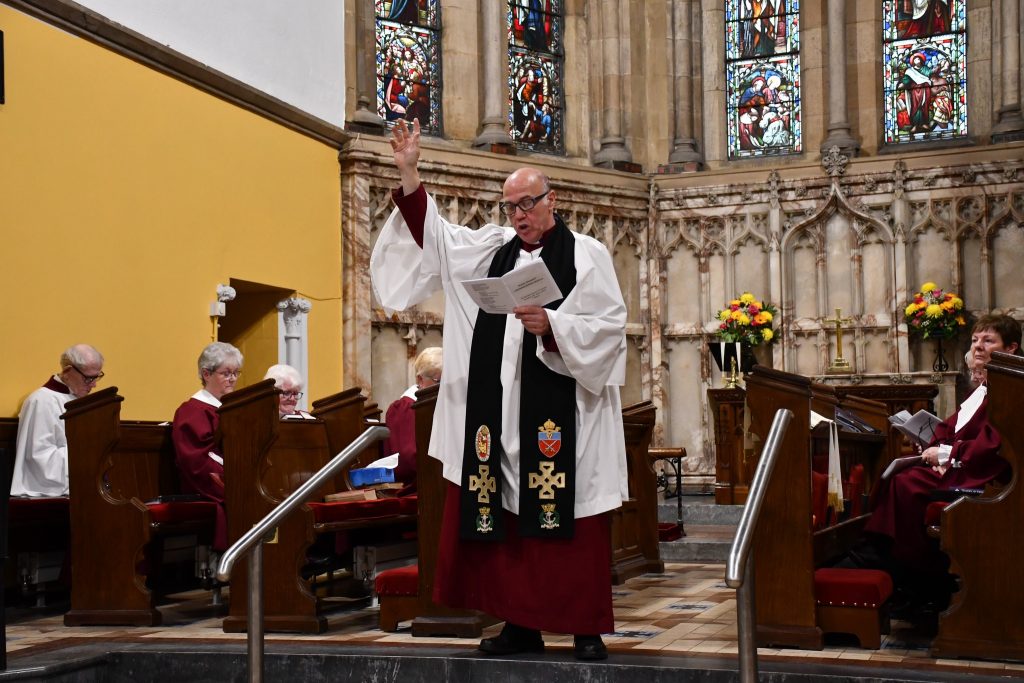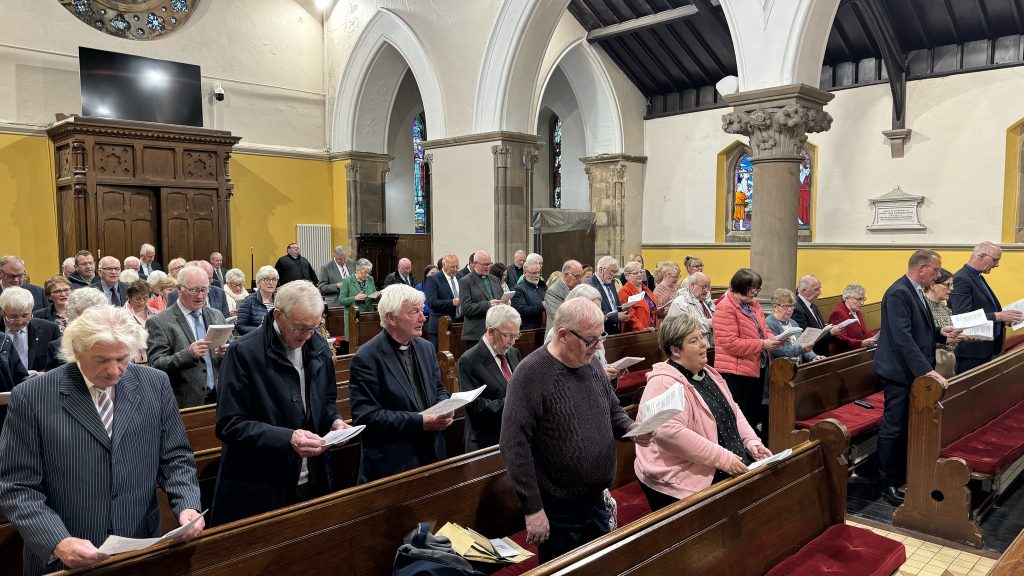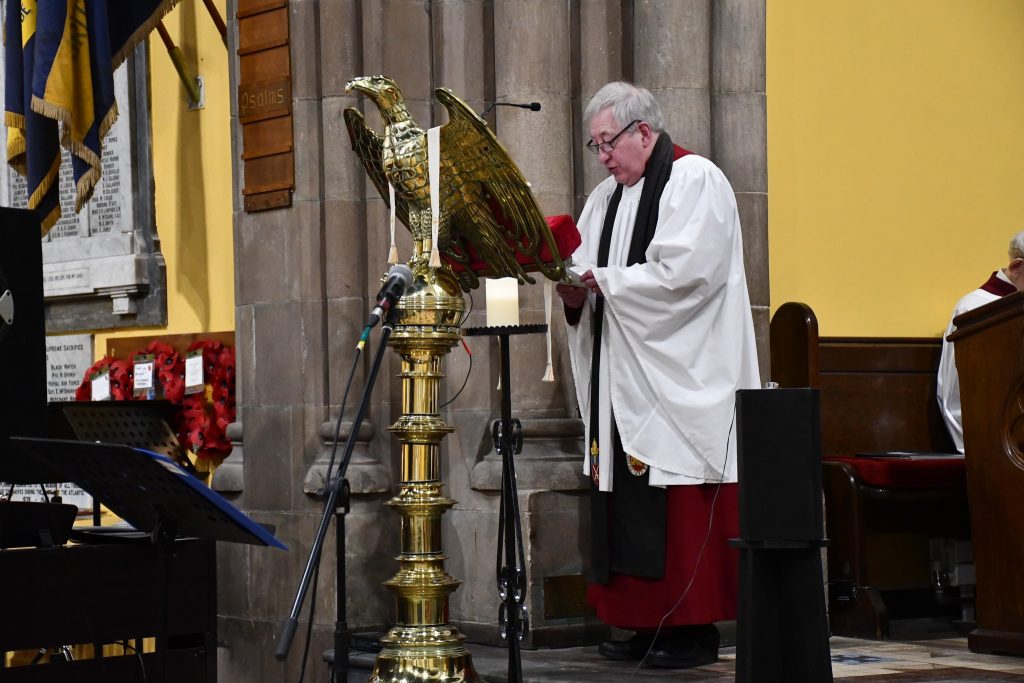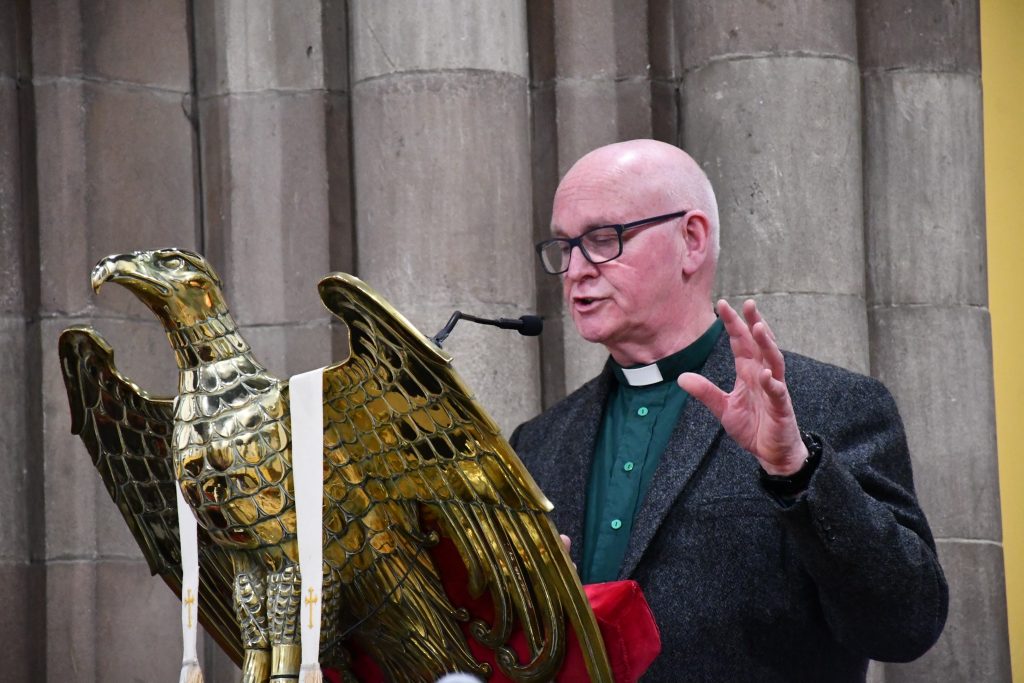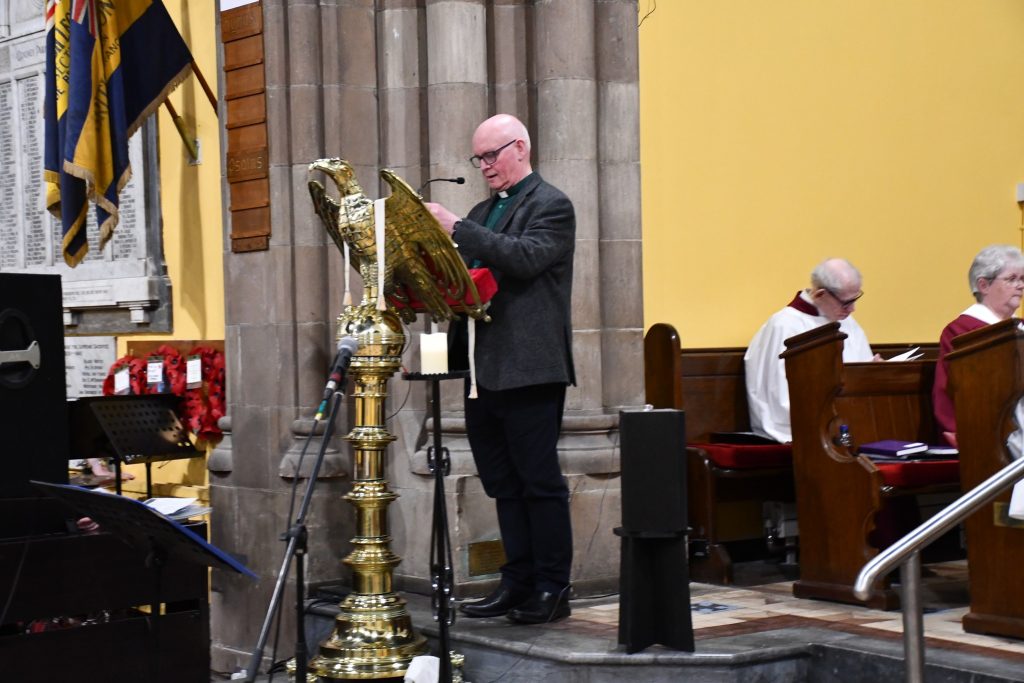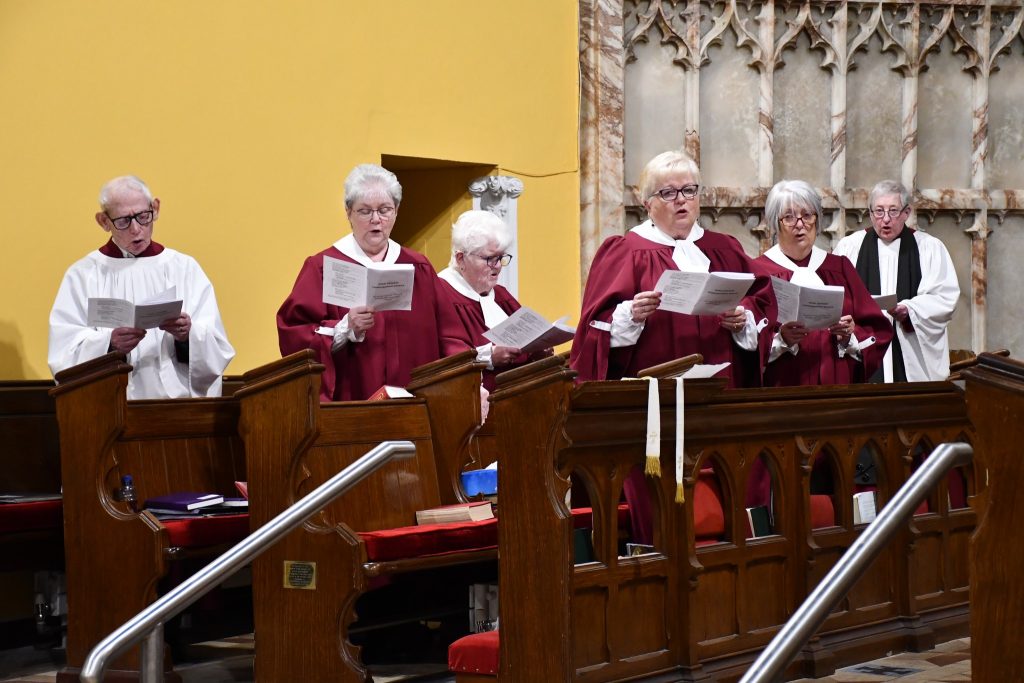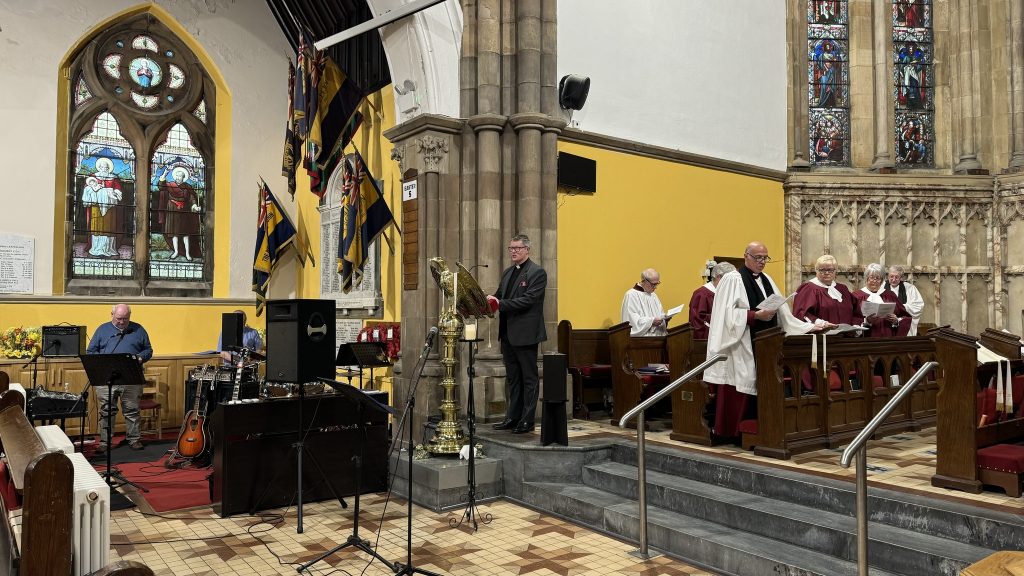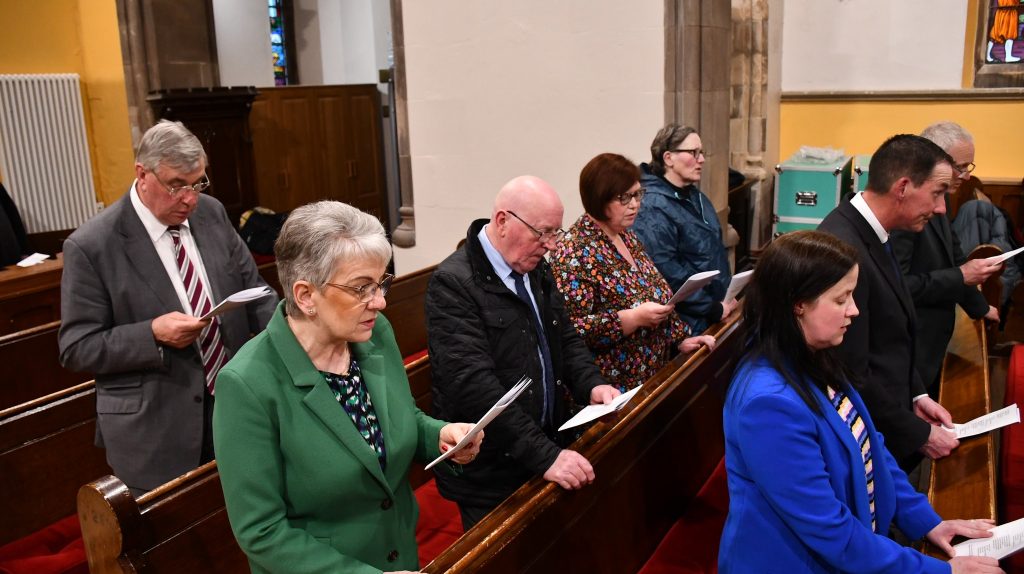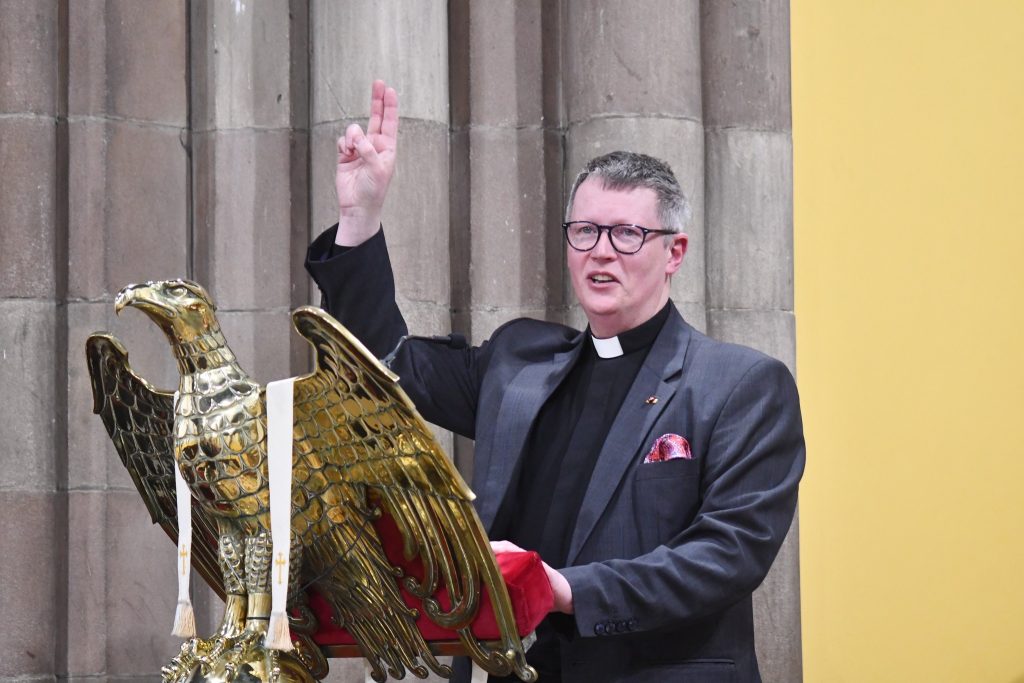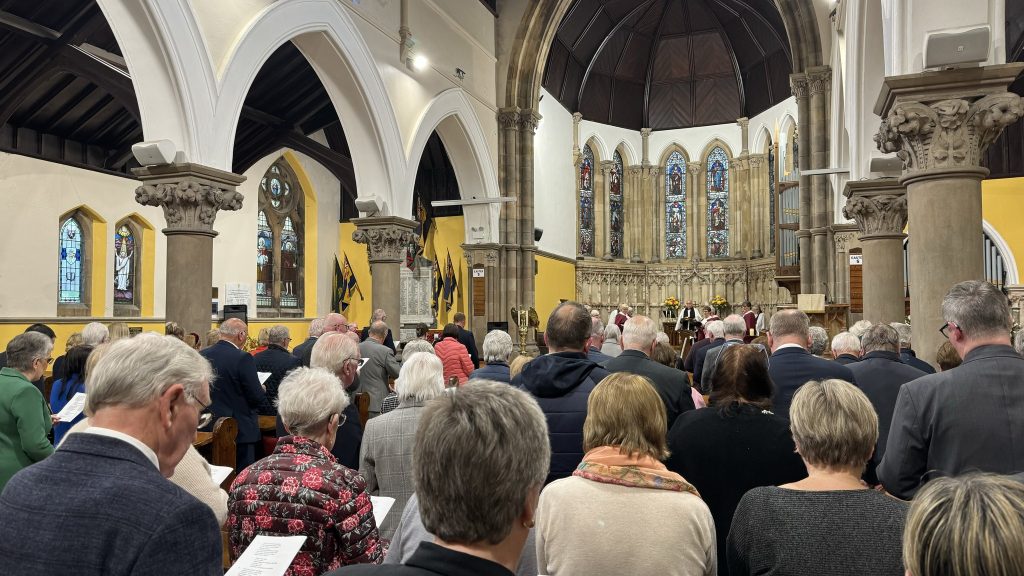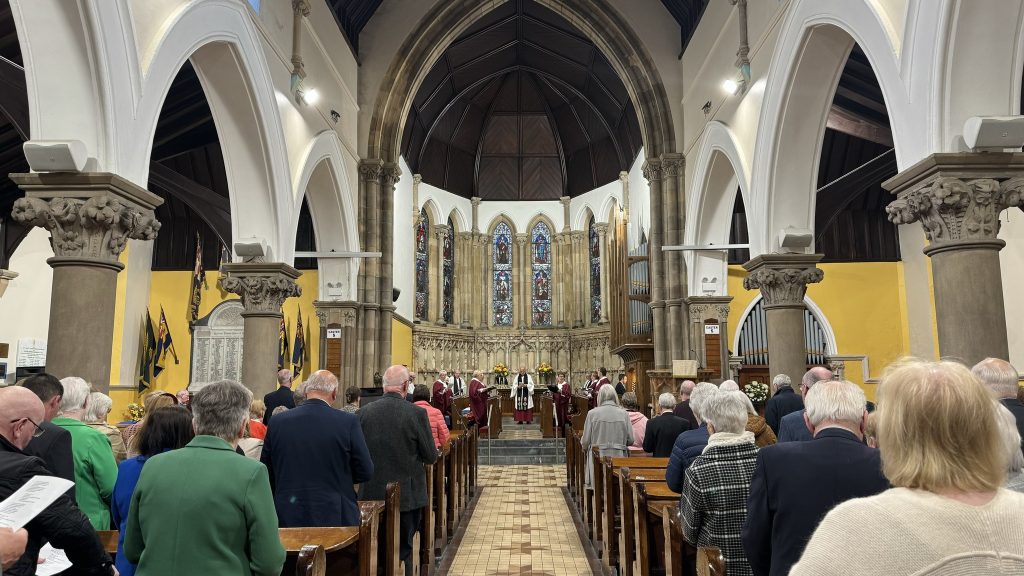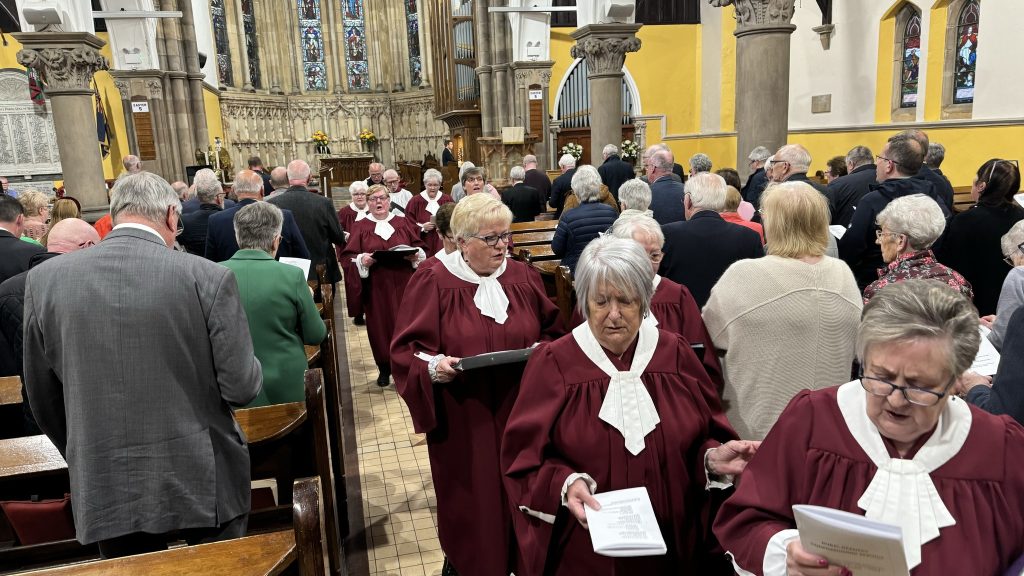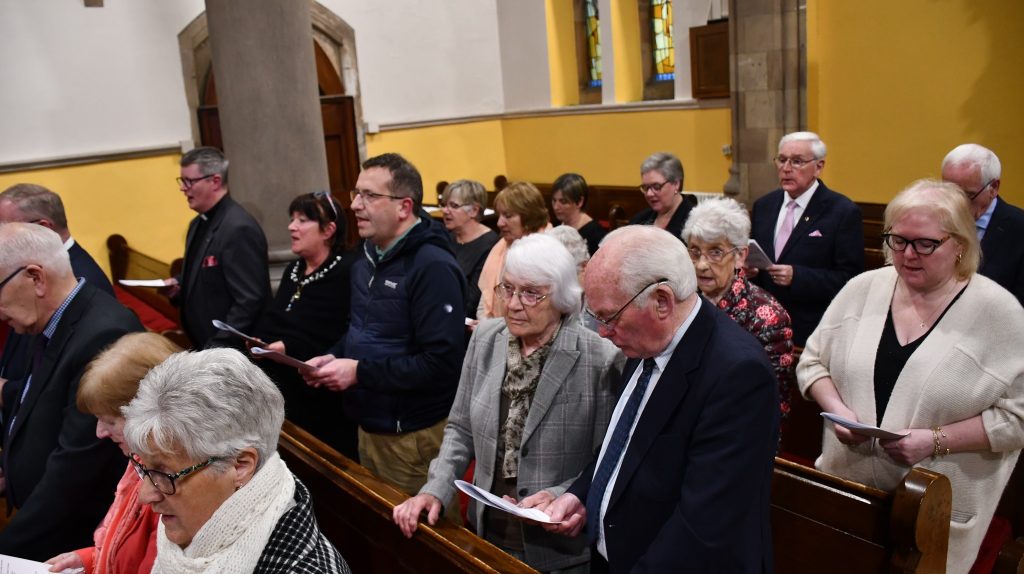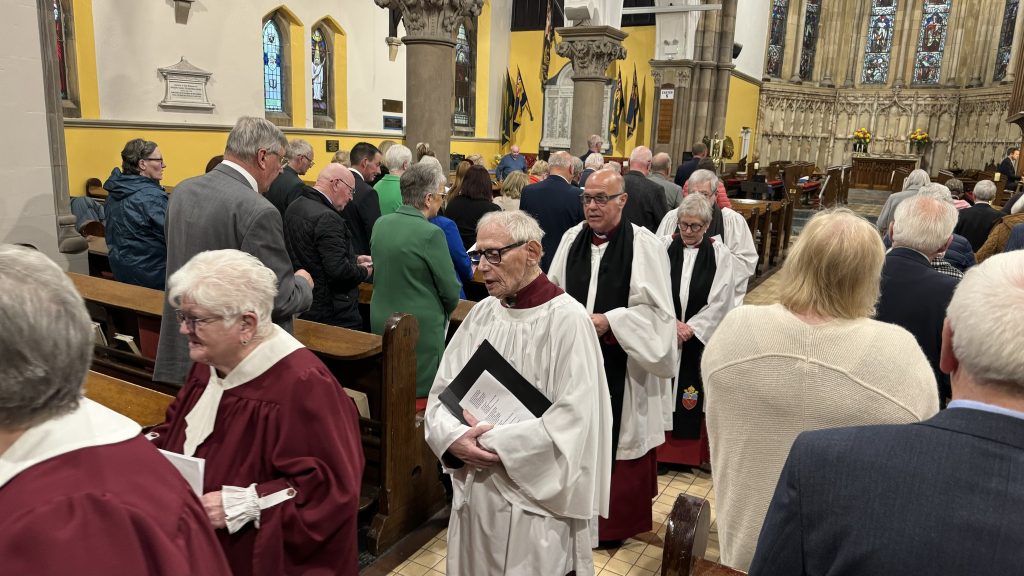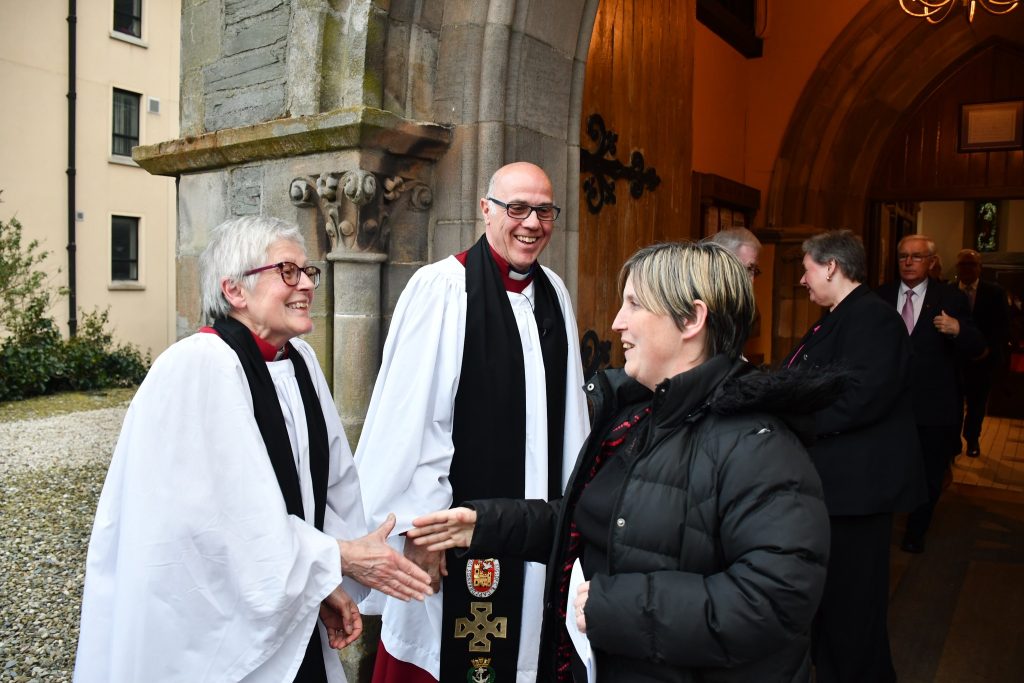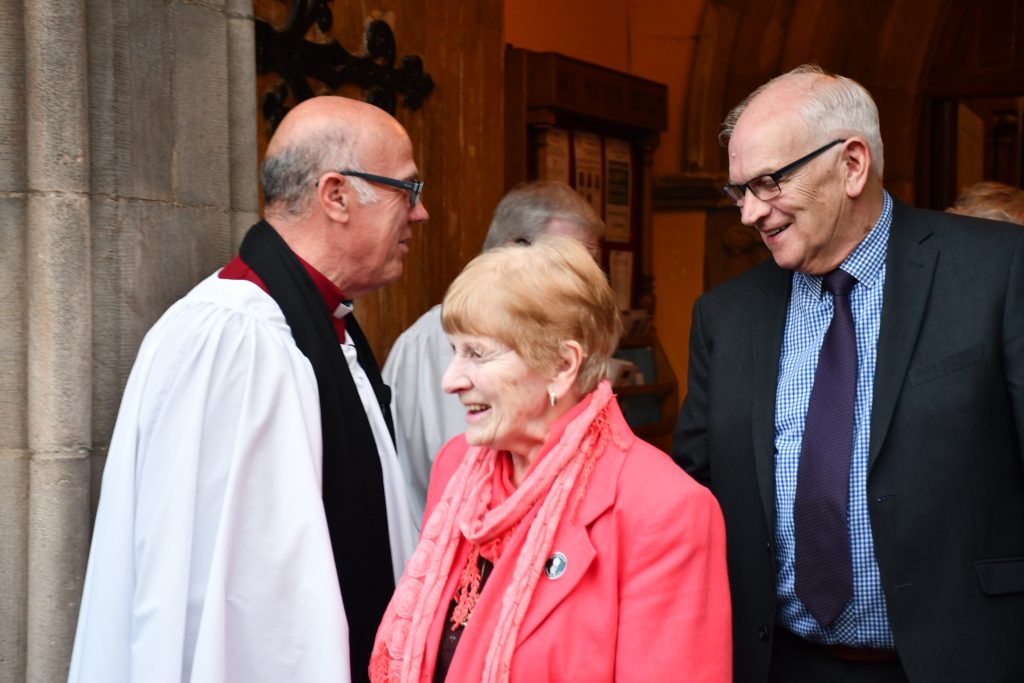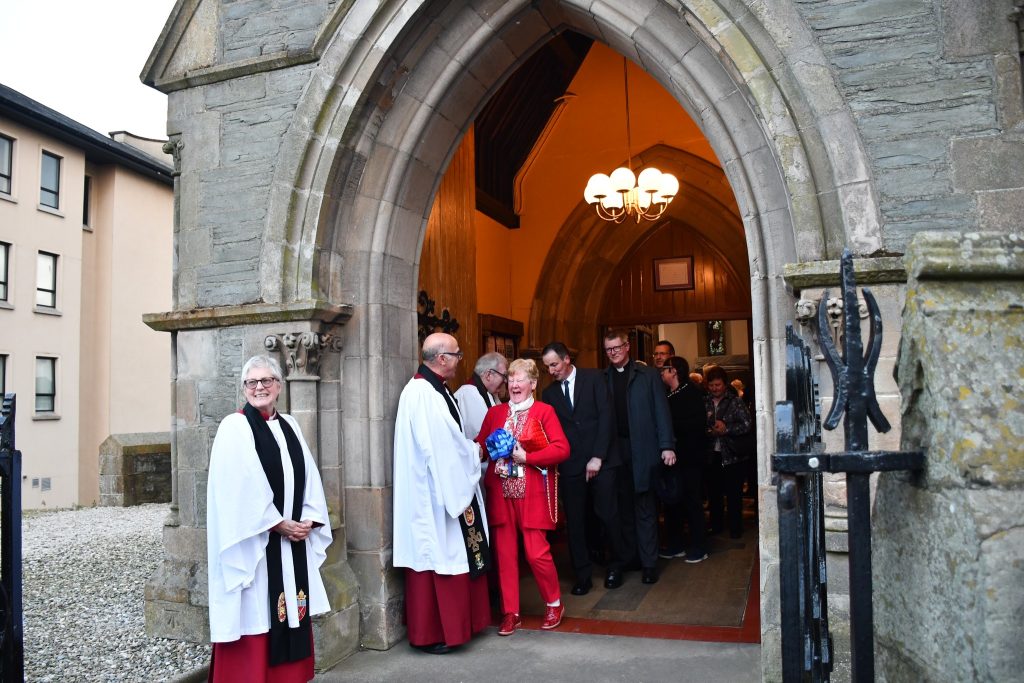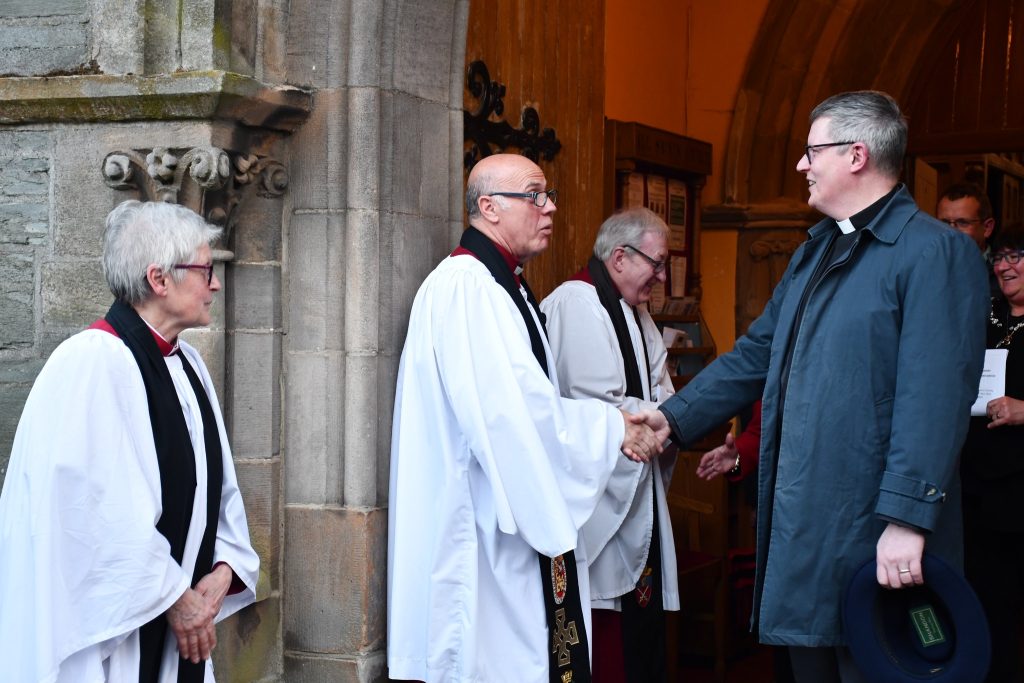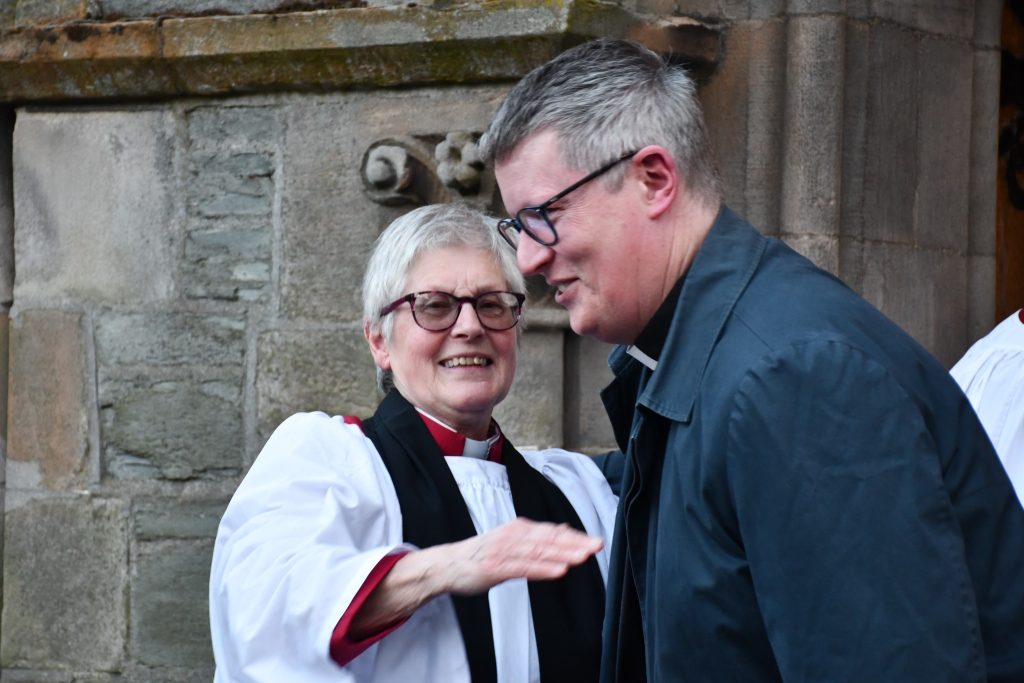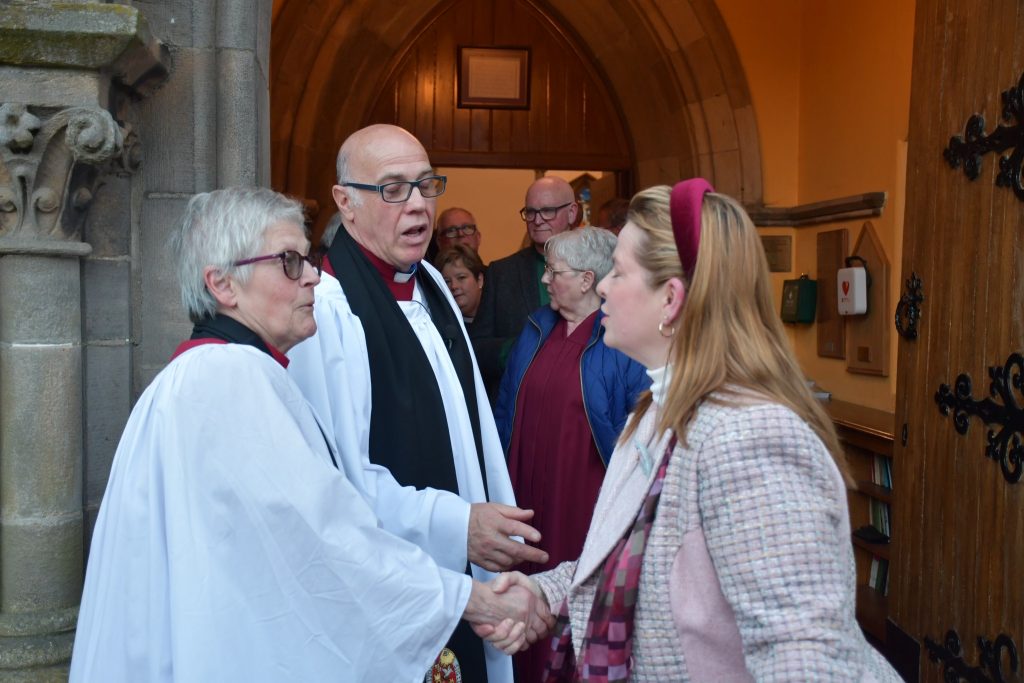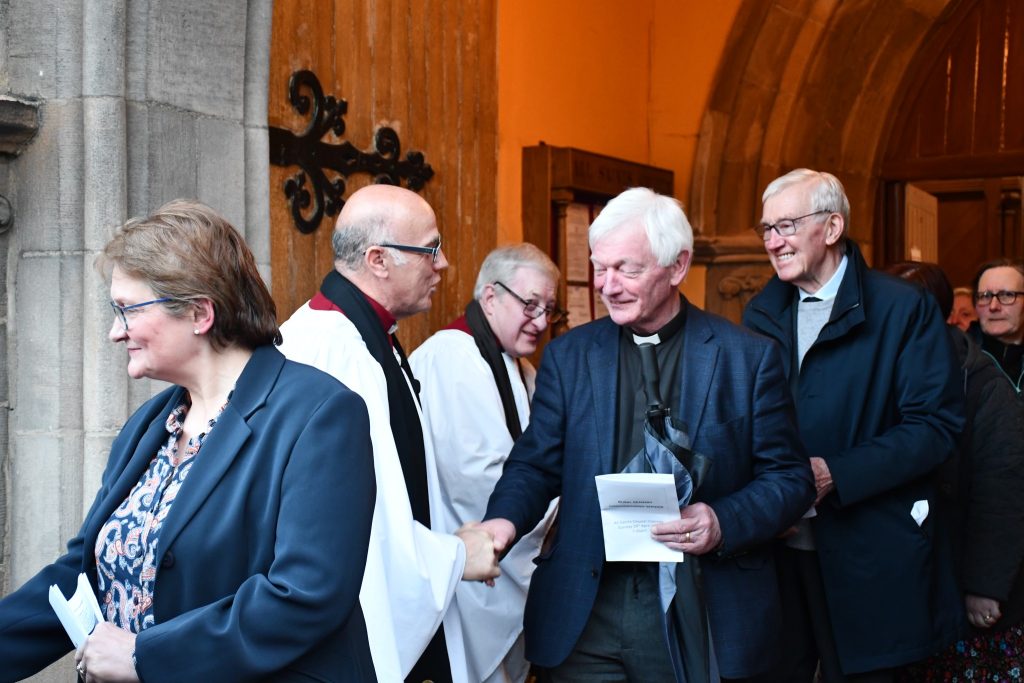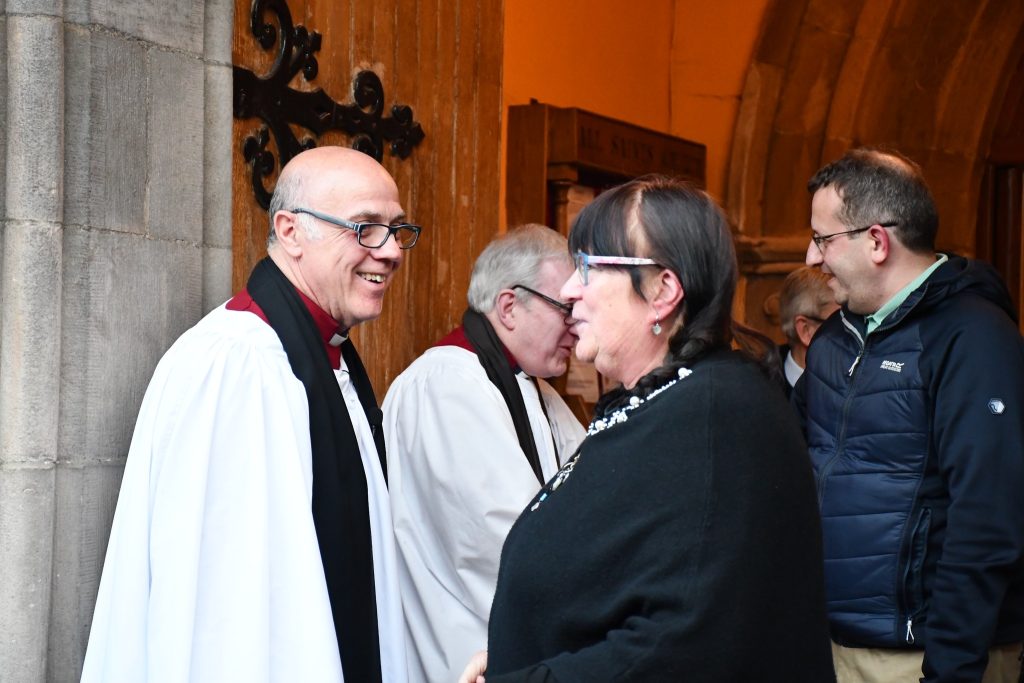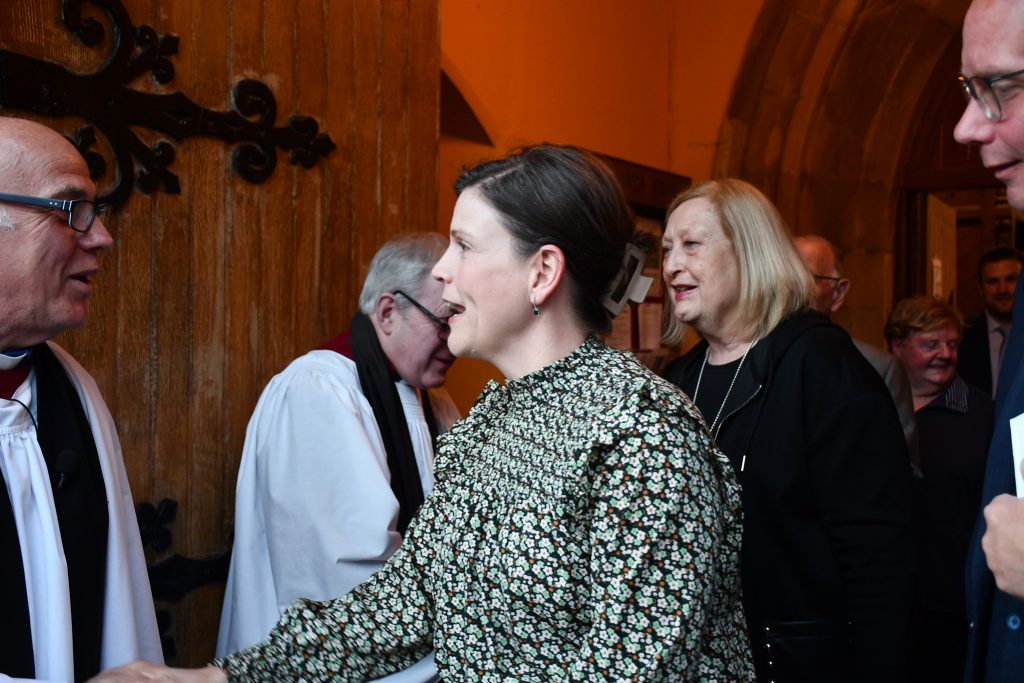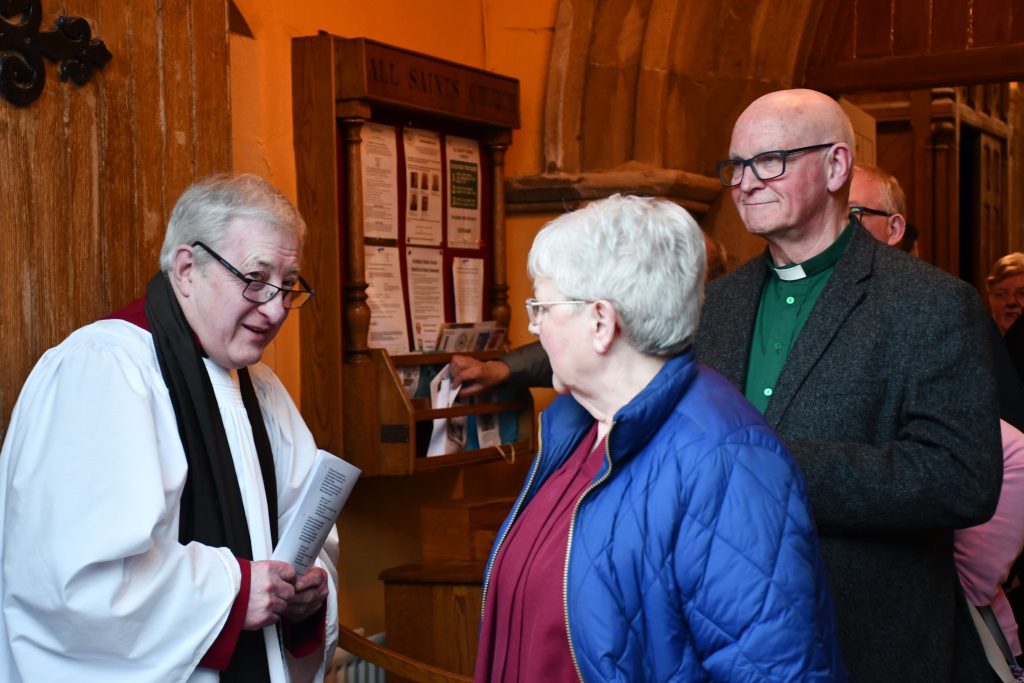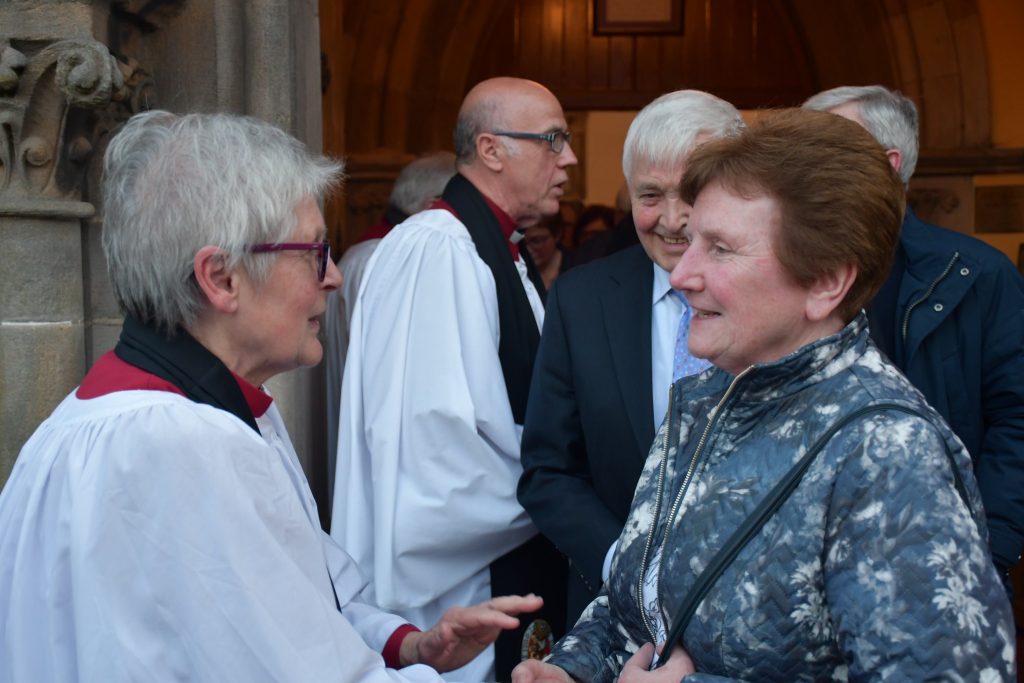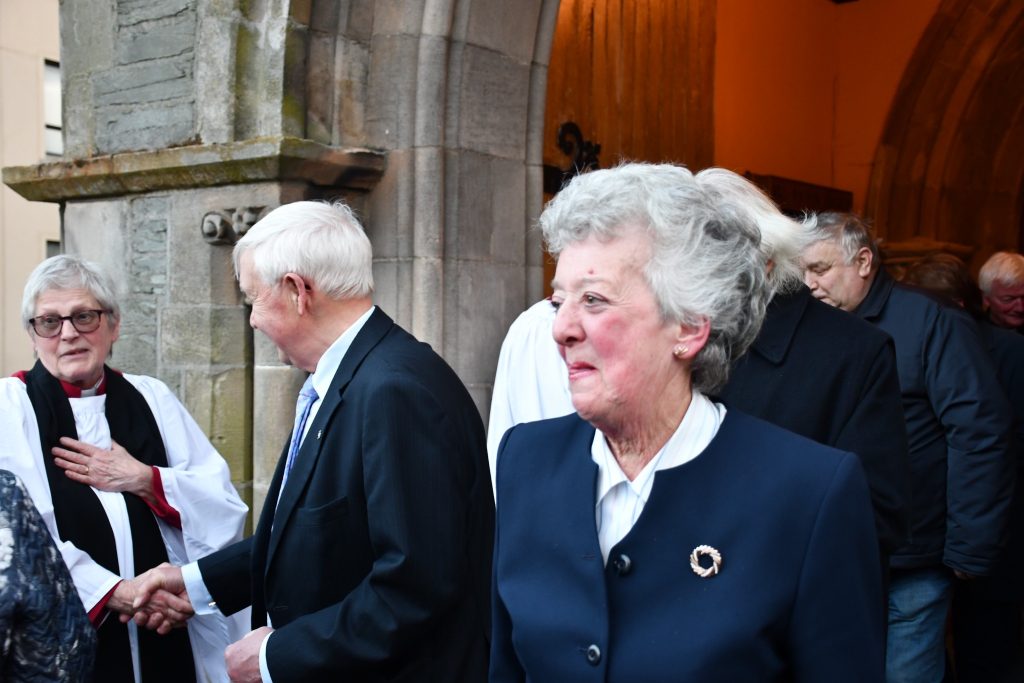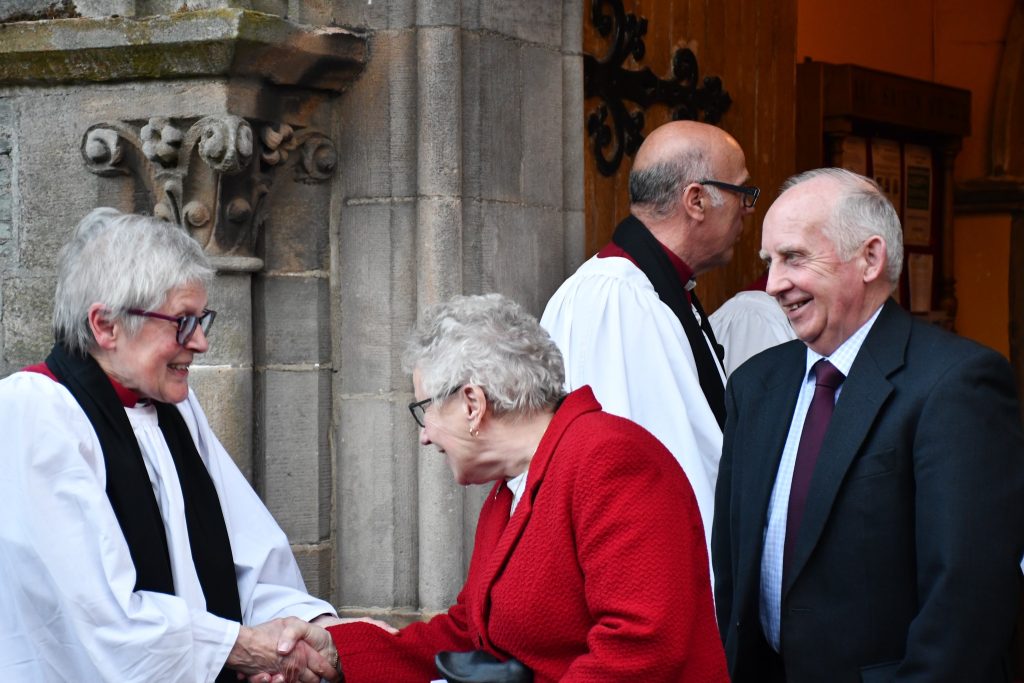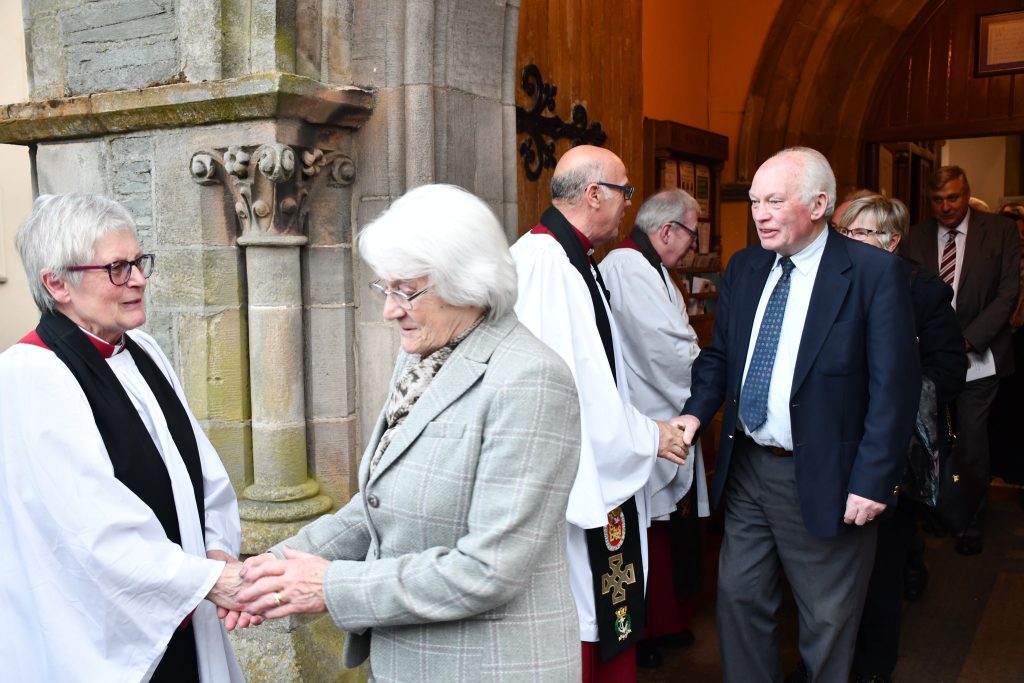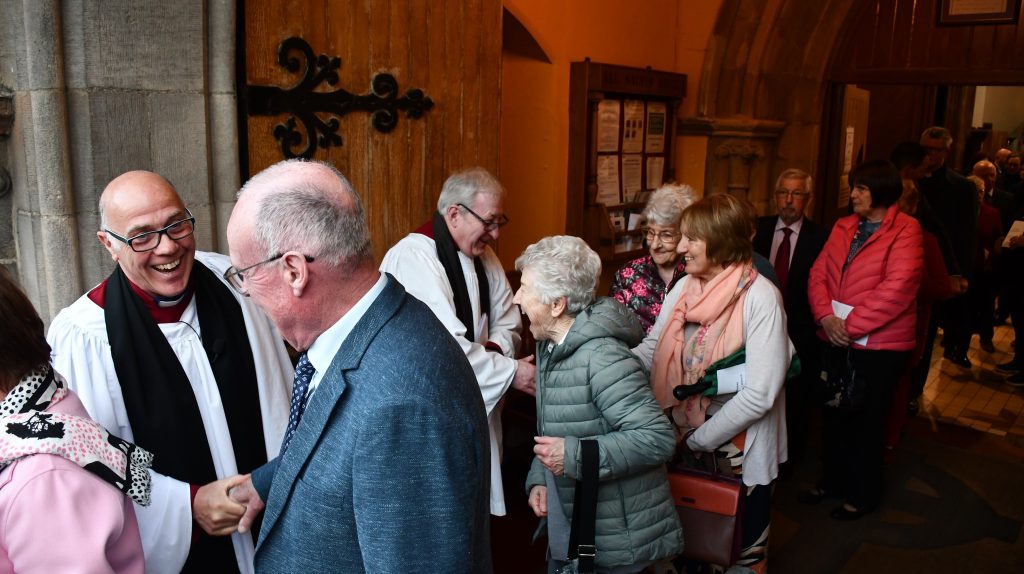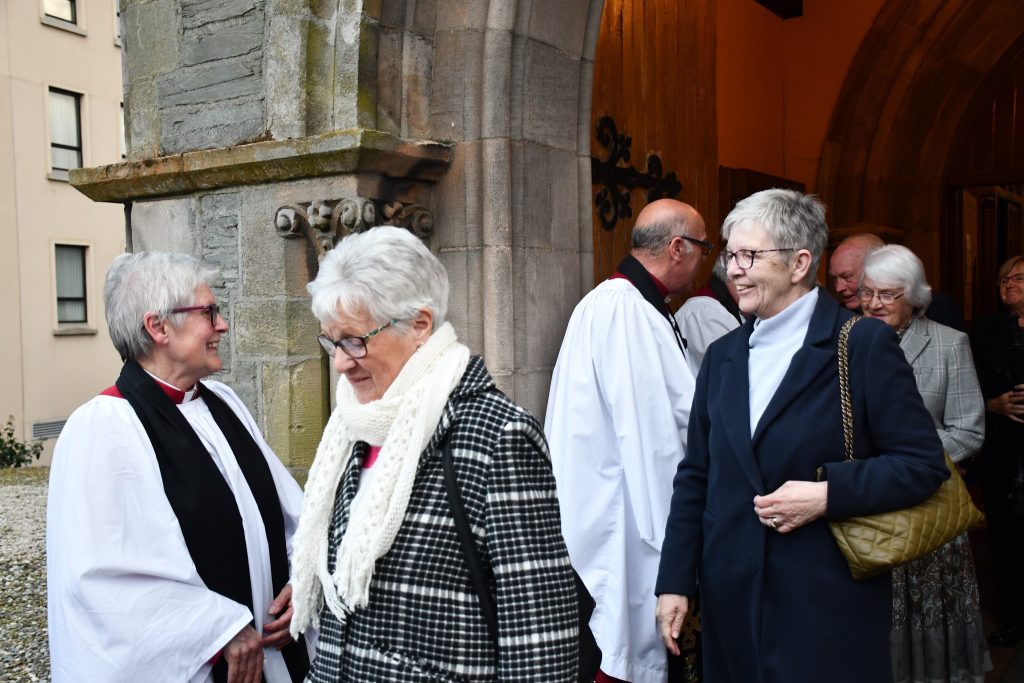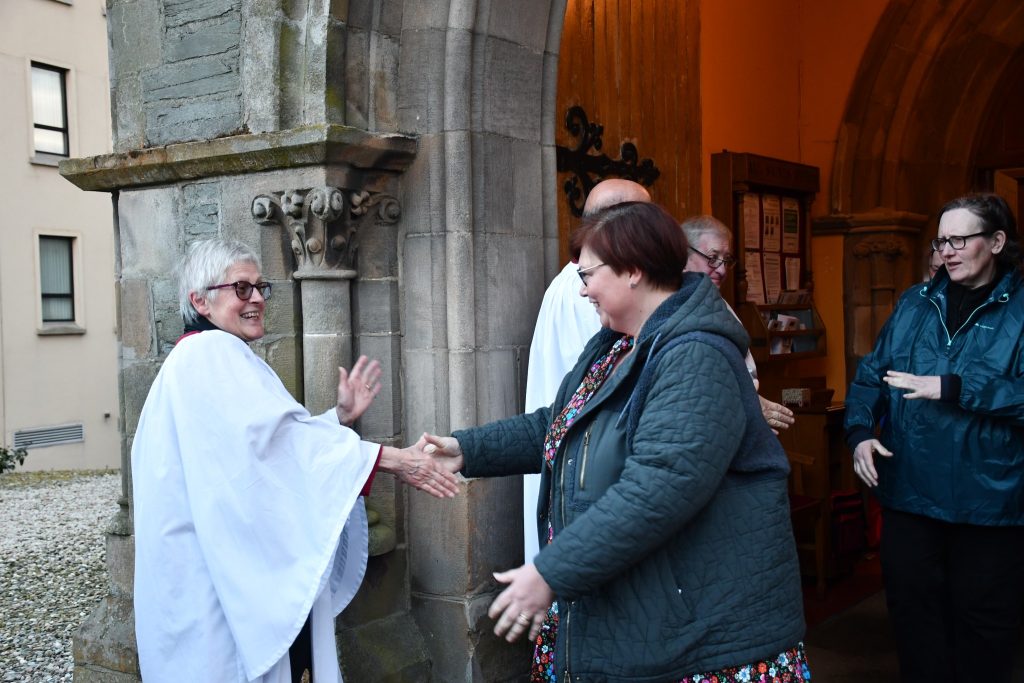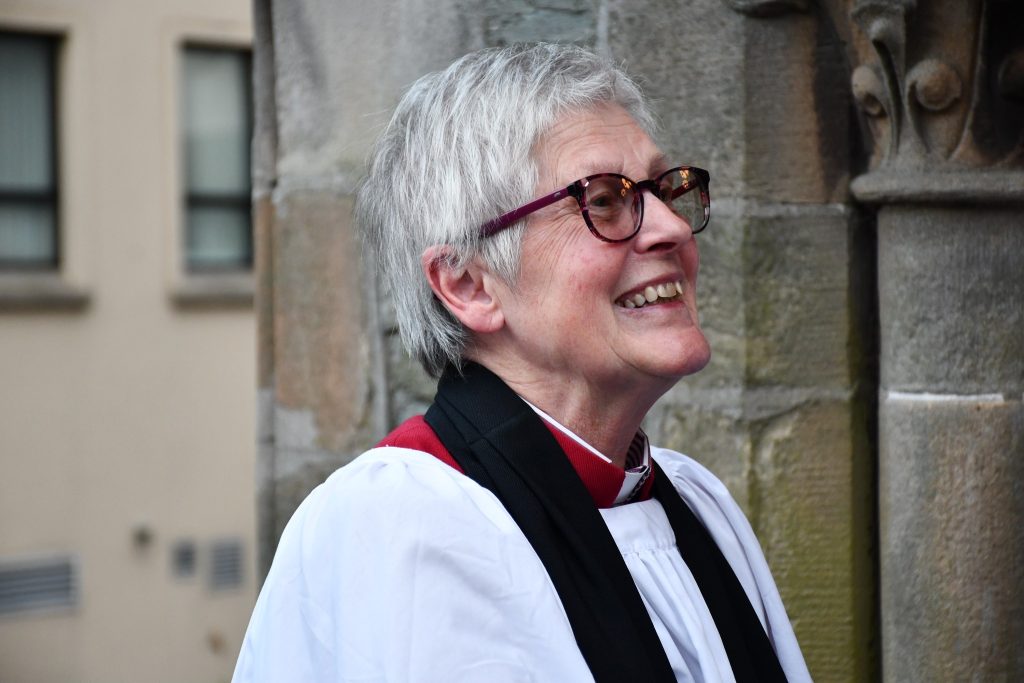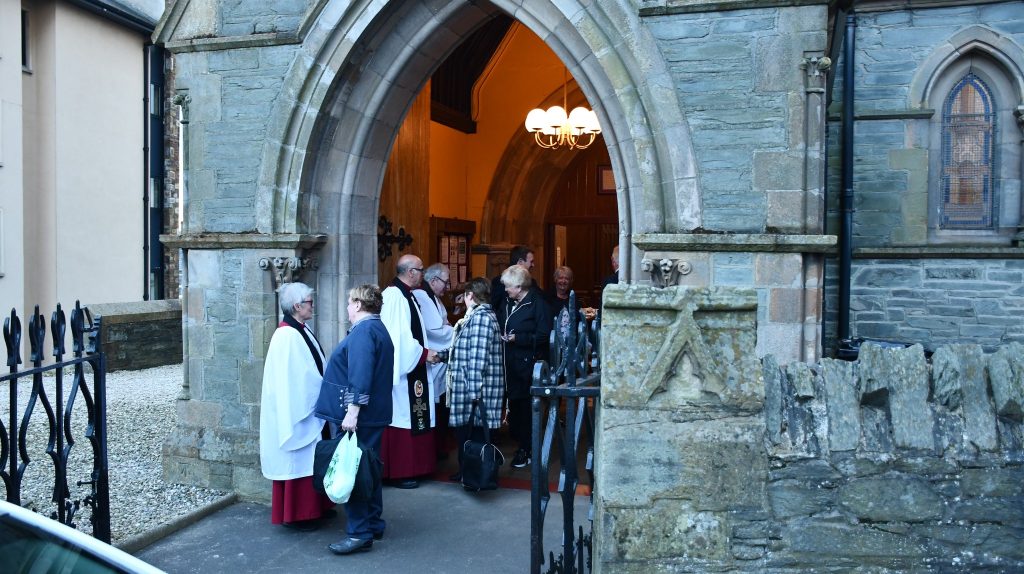Dozens of parishioners from throughout the Derry Rural Deanery were commissioned at a service in All Saints Clooney on Sunday evening to serve as churchwardens, secretaries and treasurers, glebewardens and select vestry members, and to sit on parish safeguarding trust panels or serve as safeguarding volunteers.
Select Vestries from St Columb’s Cathedral; St Augustine’s; Christ Church, Culmore, Muff and St Peter’s; Glendermott; Clooney; Faughanvale; Leckpatrick and Dunnalong; and Donagheady were commissioned at the service, which was led by the Rural Dean, Rev Canon David McBeth.
Clergy from all eight parish groups took part, including the Archdeacon of Derry, Ven. Robert Miller, who performed the blessing, and the Dean of Derry, Very Rev Raymond Stewart, who led the prayers of the people. It was a significant occasion for the Dean who, 25 years to the day earlier, had first been installed as a canon. Canon McBeth led the congregation in a congratulatory round of applause to acknowledge the anniversary.
The thought-provoking Sermon, which was preached by the Rev Canon Katie McAteer, spanned over 2,000 years of church history, ranging from the 1st Century AD right up to the forthcoming diocesan review.
Positions of responsibility didn’t stop with Select Vestry membership, Canon McAteer suggested. There could be election to office at Diocesan Council, other boards, Diocesan Synod and perhaps General Synod. She recalled an issue raised at General Synod several years ago, following the passing of a resolution that if a Select Vestry removed a tree from property in which the RCB had invested, the vestry had to ensure that two trees were replanted to compensate – “all very environmentally conscious”.
A member of General Synod – “a more august person that little old me” – asked Canon McAteer to raise the matter at General Synod. “‘Tell me,’ he said, ‘we’ve just had to remove a tree growing out of the parapet at the top of our church tower. Do we now have to plant two trees up there to replace it?’ And synod just collapsed with applause.
“I wonder when was the last time you heard a story that made you chuckle or even laugh out loud? And how did it make you feel? Sometimes you’re still smiling ages later because laughter can make your whole day seem different, seem brighter. It’s a great morale booster. And morale is at the heart of our Gospel story this evening [Luke 24: 36-48].”
Canon McAteer said the morale of the disciples had hit rock bottom in the hours after the awful events of a certain Friday in Jerusalem. “Everything had been lost. Every hope destroyed. Every expectation smashed. They were left a battered, disheartened, directionless group who had no idea what would now happen. Then, in a moment, all is changed. Those two disciples, who had given up hope and gone back to Emmaus to continue their ordinary lives, suddenly had their eyes opened and the whole world is a different place.
“It is almost impossible for us to imagine the depths of their gloom and despondency, and just as hard to imagine the power of the morale change that came into their lives. It was a morale change that was so profound that it changed them from a ragged and motley group of individuals into a world-changing movement.
“The disciples were a group entirely without resources or organisation,” Canon McAteer said, “in a world that was violently hostile. If we think that we live in a world that is not interested in what the church has to say, we should try First Century Palestine. The morale change came not through laughter – although, I imagine, they would have laughed with joy at meeting with Jesus – but with a sense of the power of Christ in their hearts. ‘Were not our hearts burning within us?’ say the pair who would surely have gone back to Jerusalem with a spring in their step to share their story.
“The disciples had the presence of the risen Christ and the faith to live as he commanded, and that is how they not only met the outside world but changed it beyond recognition. What a morale boost. They had met with the risen Lord and their lives were changed.
“Can we put our hands on our hearts and honestly say that we have been changed? The disciples walked about seven miles from Jerusalem. They reached their home and it’s dark and then, when they realise Jesus has been with them, they travel back those seven miles that night. Have we ever felt so changed by what we have read or heard, have we ever felt so strongly about our faith, that we dropped what we are doing and said, ‘What is it that God wants me to do?'”
Canon McAteer said she didn’t know how many people smiled when they heard about the upcoming Diocesan Review. It was, she said, a God-given opportunity to look for that morale boost that would change people’s lives. As leaders in their parishes, they had responsibilities – a role to play – caring for church buildings and their parish communities. “We have buildings. We have focus. How do we review what the church is doing in this diocese – the good and the not-so-good? Where is the room for improvement and how do we go about that? Are we doing what we should be doing? Could we do it differently? How are we being the Kingdom of Heaven in the place God has planted us? Are we flowering where we are sowing? How, as people entrusted with leadership in our parishes, are we involved in reviewing God’s call on our lives?”
The disciples believed, Canon McAteer said, that their morale was changed and remarkable things happened. “Morale-changing encounters can happen to us,” she said, “but we have to be open to the possibility that the risen Christ might walk along with us and even talk with us.
“So many of our churches have spires, steeples and towers that symbolically point from the height of heaven. But it is your responsibility not just to maintain our places of worship but to ensure they stand for a different way of relating to God in a changing landscape.”
